#Wildwood Dancing
Text
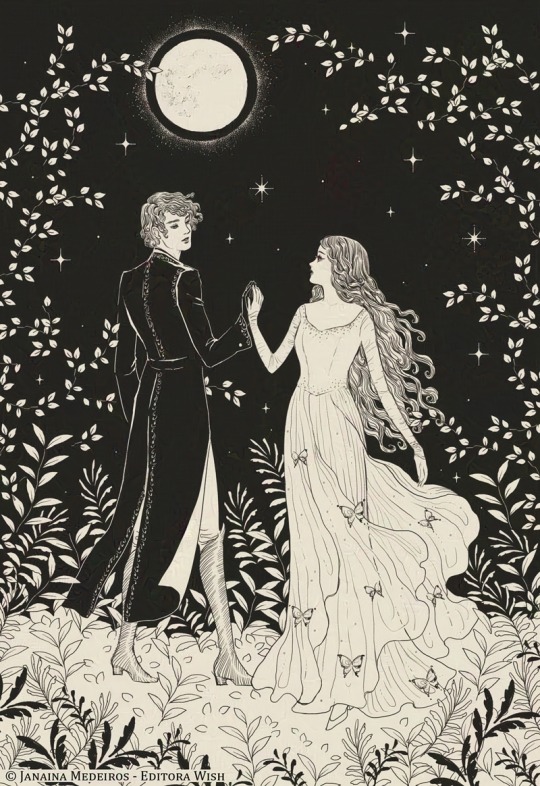
Illustration made for A Dança da Floresta (Wildwood Dancing) by Juliet Marillier. Hardcover book edition by Editora Wish. 2021.
#wildwood dancing#editora wish#juliet marillier#vintage style#a dança da floresta#art#tati and sorrow
2K notes
·
View notes
Text
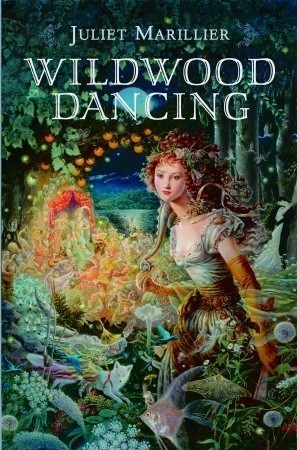
vote yes if you have finished the entire book.
vote no if you have not finished the entire book.
(faq · submit a book)
39 notes
·
View notes
Text
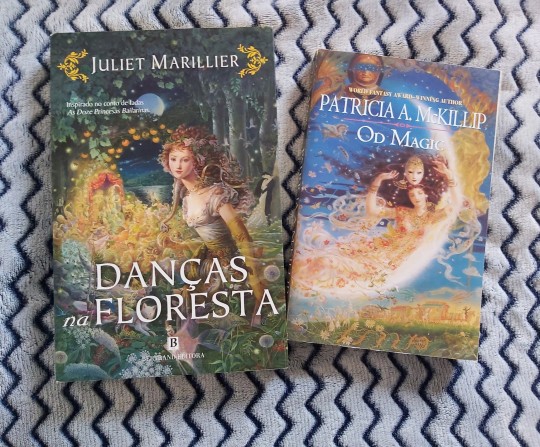
JOMP Book Photo Challenge 📚
January 8th, 2023: Other-Worldly
I love the magical fantasy covers by Kinuko Y. Craft
37 notes
·
View notes
Text
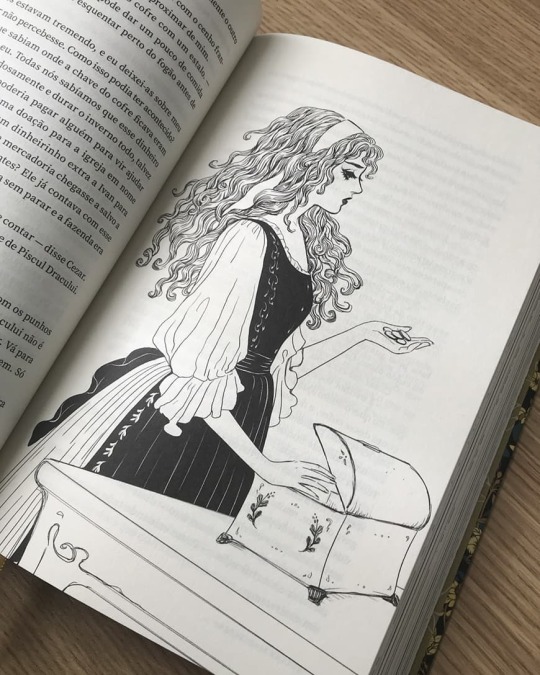


illustrations by janaina medeiros for the brazilian edition of wildwood dancing by juliet marillier
35 notes
·
View notes
Text
Part Two
I’m very proud of these dolls, and I’m also leaving them at my parents’ house, so I did a little photoshoot with some books as background so I can have nice pictures of them.
This is the second post, so check out the first for more info!

First up we have Pocahontas (real name Matoaka) with Elatsoe, by Darcie Little Badger. It’s a why-dunnit, not a who-dunnit, about a Lipan Apache girl who has some serious ghost powers. Pocahontas was a tough one, but I decided to go with a book I love about a modern Lipan Apache (Indigenous) girl, written by a modern Lipan Apache (Indigenous) woman. I know a lot of people have strong feelings on both the real life Matoaka and the cartoon Pocahontas, and how she symbolizes a lot of sad and terrible changes for Turtle Island. So I thought putting the doll and this book together would provide an interesting contrast, one that the real life Matoaka may find horribly interesting.
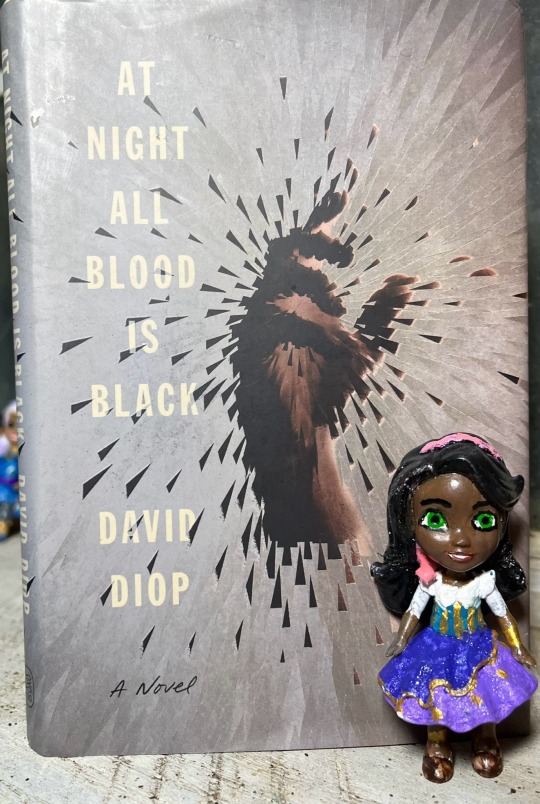
Second is Esmeralda with At Night All Blood Is Black, by David Diop (the French title means Soul Brother - I believe that the title is a play on the English Idiom, At Night All Cats Are Grey, meaning you cannot see meaningful differences in the right circumstances). It’s a very interesting though sorrowful novel about a Senegalese Tirailleur (Infantryman) who was sent to France during WWI. I don’t think Esmeralda would read this normally, but if she was in a sad mood, I think the theme of fluctuating humanity during conflict, and being a Person of Color in France (even centuries later!) would interest her.

Third up is Mulan with Lady of Ch’iao Kuo: Warrior of the South, by Laurence Yep. When I drew pictures for Mulan’s poem (years ago now!) I headcanoned in my explanation that Mulan and Lady Xian, princess of the Li Xian people in modern day Guangdong, were close enough in history that they *might* have met and been friendly. Mulan is typically from further North and West than Guangdong, and would be part of the colonizing side in this case sadly, but I feel like they would respect each other as fellow powerful women.

Fourth is Melody (Ariel’s daughter) with A Song Below Water, by Bethany C. Morrow. I think she’d go into the book with certain expectations, like I did, about the plot, and then get drawn in by the real story. Let’s just say the cover gave me assumptions that lead to a great twist for me personally. Also, I think Melody would relate to the mystery of her magical parent’s true background. The book celebrates the lesser known fantasy species, and approaches the danger of traffic stops, police brutality and protesting for Black people, and how that intersects with being a woman, with care and love. If they ever make a live action Little Mermaid 2, I feel like that would also speak to Melody.
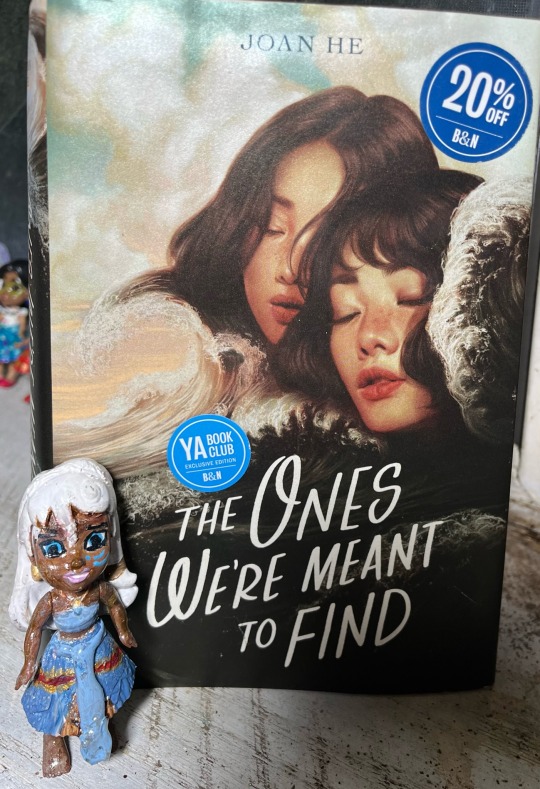
Fifth is Kida with The Ones We’re Meant To Find, by Joan He. Kida is from a fantasy ancient civilization, and this book depicts a sci-fi futuristic one, but there’s more similarities than one might initially think. Both exist due to the hubris of humanity, and in reaction to serious pollution topside. And both explore (or at least mention) a relationship between two women separated by the change in their civilization, and with a boy who seems to know too much. I’m not sure Kida would necessarily read this story, aside from its attractive and exotic (to her, at least) take on the world above, which she has not seen for millennia, but this story is similar enough to Kida’s movie that I felt it fell under the adaption category instead.
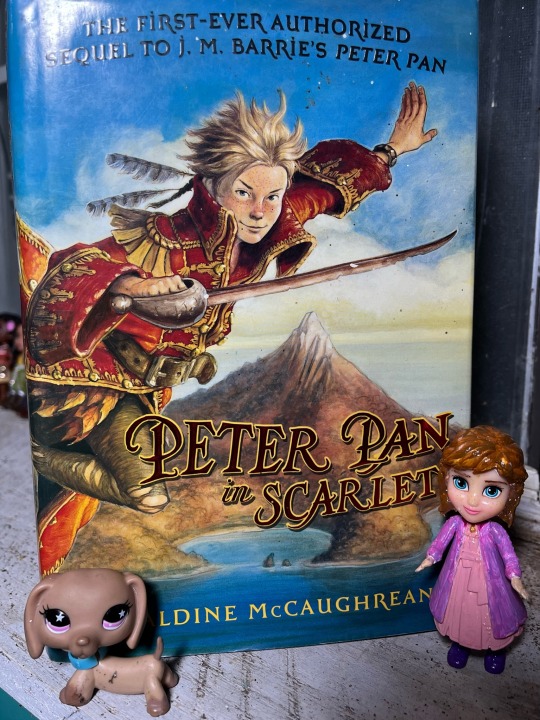
Sixth is Jane (from Peter Pan 2, Wendy’s daughter) with Peter Pan on Scarlet, by Geraldine McCaughrean. The Disney movie is NOT based on this book, but both do mention Wendy’s family being affected by a World War, though this one has WWI and the movie has WWII. Interestingly, both have a sympathetic Hook initially. ‘Twas a lovely read, and in my opinion matched the original book based on the play.
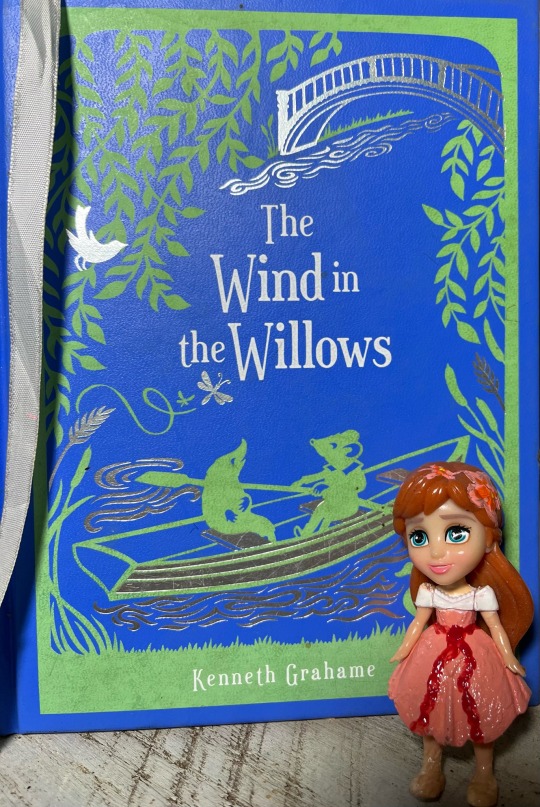
Seventh is Giselle with The Wind in the Willow, by Kenneth Grahame. I just felt Giselle would enjoy the idea of cute talking animals (but not so much the war storylines of Redwall) so I put her with this book.

Eighth is Tiana (<3) with Wildwood Dancing, by Juliet Marillier. Funnily enough, I do actually have the *sequel* to the book her movie was based off of, but I’ve never read the original, so I decided it doesn’t count. But this is my favorite mixed up fairy tale novel that features a Frog Prince storyline, so I went with it. The villain is also a greedy butt who doesn’t care for his own people, and the protagonist is often underestimated, due to her appearance and gender. In any case, I love this book so much that I illustrated the first chapter, lol.
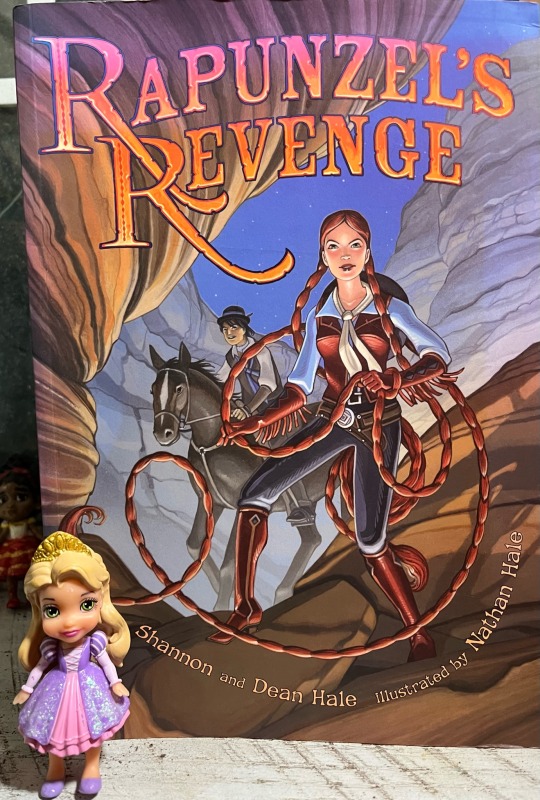
Ninth is Rapunzel with Rapunzel’s Revenge, by Shannon, Dean and Nathan Hale. I loved this adaption since I was a kid (honestly more than Tangled) and I’m pleased to finally own it.

Last is Merida, with The Edge on the Sword, by Rebecca Tingle. The book is about a warrior princess a thousand years ago in what is England today, with a forced engagement storyline, so I figured this would be right up Merida’s alley.
Part One
Part Three
Part Four
#dp dolls book photoshoot#elatsoe#at night all blood is black#Frère d'âme#lady of ch’iao kuo#a song below water#the ones we’re meant to find#Peter pan in scarlet#the wind in the willows#wildwood dancing#Rapunzel’s revenge#the edge on the sword#Esmeralda Melody Kida and Jane#oh and Giselle and arguably Tiana were all painted by me
4 notes
·
View notes
Text
Round One
I've heard it said that girls can't keep secrets. That's wrong: we'd proved it.
-Wildwood Dancing, Juliet Marillier
Verujete li u bajke? Svakome u životu ispričana je makar jedna bajka. I lepo je verovati u njih. One nas vode u neki čarobni svet kakav nikada videli nismo i za koji nikada čuli nismo. Najvrednije i najlepše stvari na svetu ne mogu se videti ili dodirnuti. One se samo mogu osetiti. Da bi nešto postigao na ovom svetu, zaista moraš da voliš. Život se sastoji od trenutaka. Živite svoj san. Morate ga imati, ako ga nemate, kako ćete ga ostvariti?
(Do you believe in fairy tales? Everyone in life has been told at least one fairytale. And it's nice to believe in them. They lead us to a magical place like we've never seen and like we've never heard of. The most valuable and most beautiful things in the world can't be seen or touched. They can only be felt. To achieve something in this world, you really have to love. Life is made out of moments. Live your dream. You have to have it, because if you don't have it, how will you make it true?)
-Mesec Boje Purpura, Miloš Kojić
Enchantments and dreams: I suspect they are made of the same stuff. They each beguile the mind and confuse the senses with wonder and strangeness so all that was familiar becomes freakish, and the most bizarre of things intimate and natural.
-The Beast’s Heart, Leife Shallcross
#books#polls#reading#round 1#tournament poll#wildwood dancing#juliet marillier#mesec boje purpura#miloš kojić#the beast’s heart#leife shallcross
12 notes
·
View notes
Photo

Random Word BPC January 2023
Day 1: Frog
44 notes
·
View notes
Text
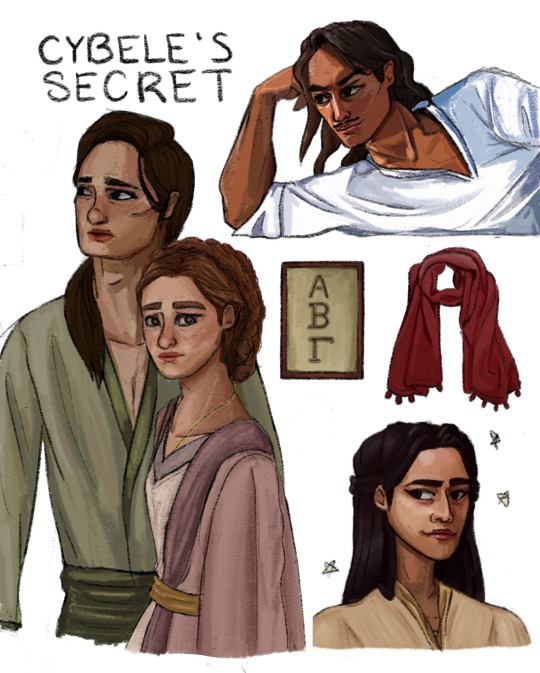
Fan art for Cybele's Secret by Juliet Marillier <3
#juliet marillier#cybele's secret#wildwood dancing#ya lit#ya fantasy art#fantasy art#ya fan art#my art
4 notes
·
View notes
Text
A dança da floresta 🌿🦋✨🌼
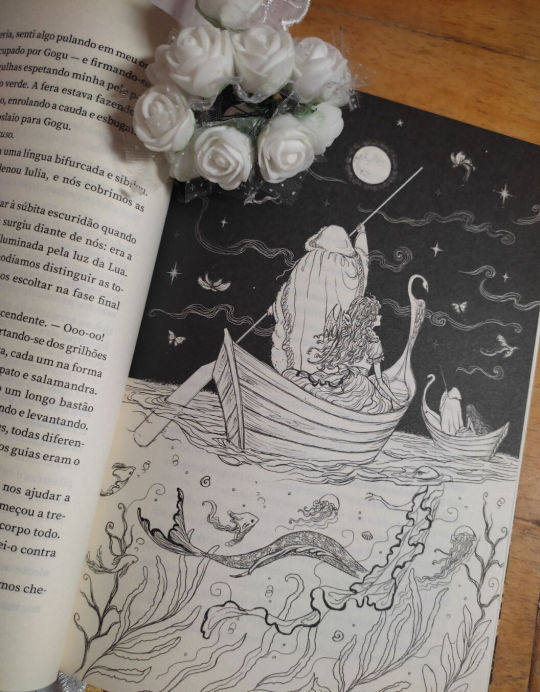


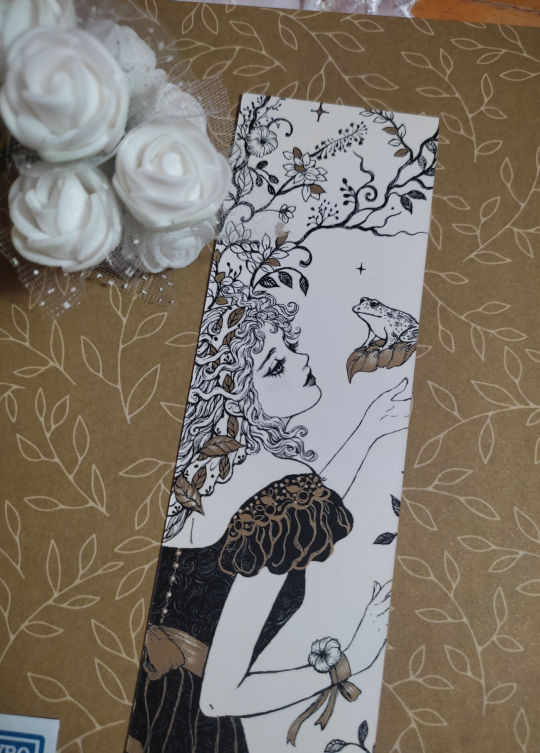
#a dança da floresta#juliet marillier#livros#art#ilustration#draws#cottagecore#goblincore#cottagore#books#wildwood dancing
3 notes
·
View notes
Note
Thought you ought to know that I saw that Warrior Bards fic you reblogged last night and now I've splurged seven credits on Warrior Bards, Blackthorn and Grim and the sequel to Wildwood Dancing. I could, theoretically, drop most of my remaining credits on the rest of the Juliet Marillier audiobooks as well. Still mad they don't have 'Twixt Firelight and Water yet!
That's great! :D I ended up buying the first Warrior Bards book after seeing/reblogging that fic post and I really enjoyed it! I bought the second book right after I finished the first one and I'm reading it now. :D Also it looks like the books are set in the Sevenwaters-verse which is exciting! :D I think they're definitely worth checking out!
I haven't read Blackthorn and Grim but I might try it again once I'm done with Warrior Bards. I also haven't read Cybele's Secret, because I didn't enjoy Wildwood Dancing.
4 notes
·
View notes
Text
My Introduction to Juliet Marillier

You can probably see how well loved the paperback edition of Wildwood Dancing is in this picture; that's because I found it as a teenager and it has stayed with me ever since. These companion novels were my first introduction to Juliet Marillier, and quite honestly, even if you aren't a teenager when you find this author, I still highly recommend these books for their wordlbuilding, characters, and magic. Let's talk the Wildwood Series.
Wildwood Dancing is a Translyvanian retelling of the 12 Dancing Princesses but with night people (after Bram Stoker, they would be called vampires, but the book is full-on set before Stoker, so the word vampire is not used) blended with a retelling of the Frog Prince. The absolute seamlessness with which these stories blend together into the Transylvanian setting makes for a completely immersive reading experience. This book is stunningly well-written, the five sisters we follow have clear, discrete personalities, and Grogu is absolutely charming--which honestly I never thought I'd say about a frog.
Cybele's Secret is more of a companion to Wildwood Dancing than a sequel, although there's room to quibble on definitions there. This book follows middle sister Paula out of Transylvania and into Istanbul, where she gets mixed up in international commerce, the cult of Cybele, a rich socialite, and a cute, stoic bodyguard. This book's whole vibe is old-world myths and quests, and it delivers on it.
Both these books are lush, lyrical, and stuck in my head and heart for years. I literally cannot recommend them enough.
#juliet marillier#wildwood dancing#cybele's secret#fiction#fantasy#historical fantasy#ya fantasy#ya books#books and novels#books and reading#book recommendations#books & libraries#books that live rent-free in your head forever#strong female lead#strong female characters#strong female protagonist#night people#cult of cybele#transylvania#istanbul#fairy tale retelling
12 notes
·
View notes
Text

Illustration made for A Dança da Floresta (Wildwood Dancing) by Juliet Marillier. Hardcover book edition by Editora Wish. 2021.
#juliet marillier#wildwood dancing#editora wish#vintage style#a dança da floresta#jena and costi#janainaart#art#jena#costi
1K notes
·
View notes
Text
Mid-Year Book Freak-Out Tag 2023
Best Book you’ve read so far in 2023?
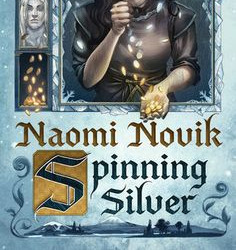
Best Sequel you’ve read so far in 2023?

New release you haven’t read yet, but want to?
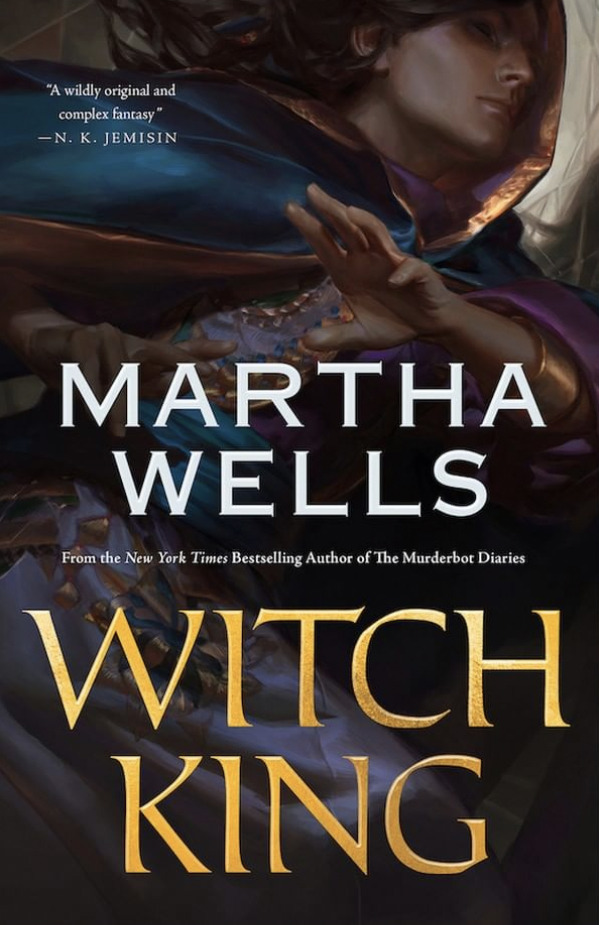
(so hard to choose which of the many!)
Most anticipated release for the second half of the year?
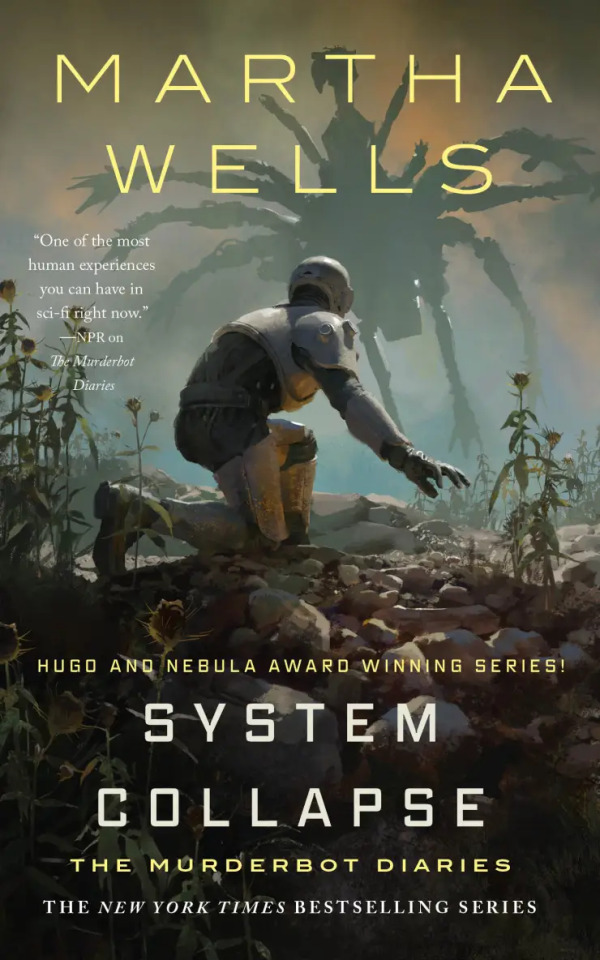
and

(hurry up Yen Press!)
Biggest disappointment?

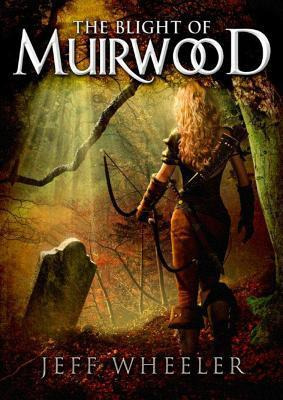

Biggest surprise?
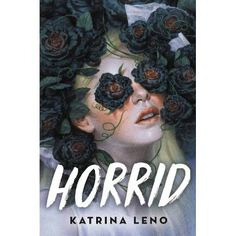
Favorite new author (Debut or new to you)?

Katrina Leno
Newest Favorite Character?
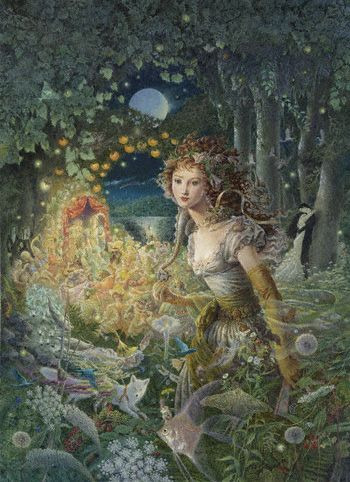
Jena from Wildwood Dancing
Book that made you cry?
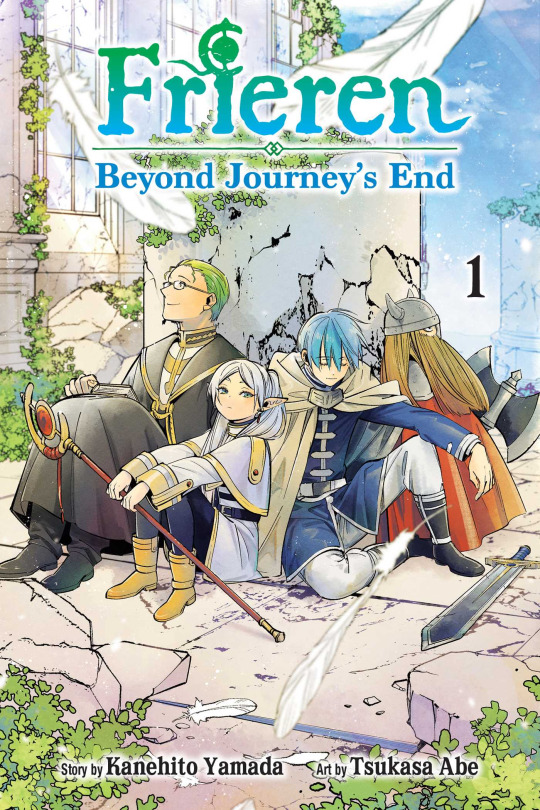
Book that made you happy?

Favorite Book to Movie Adaptation?
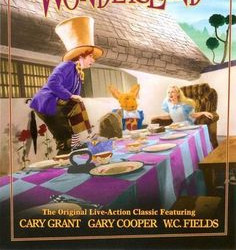
What books do you need to read by the end of the year? (Only 55 on my Current TBR shelf....^_^’)
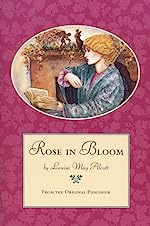
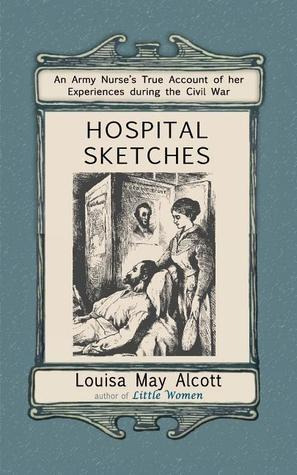
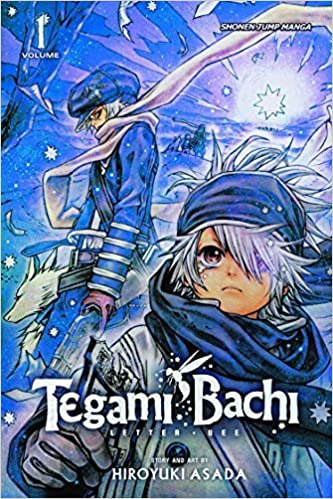



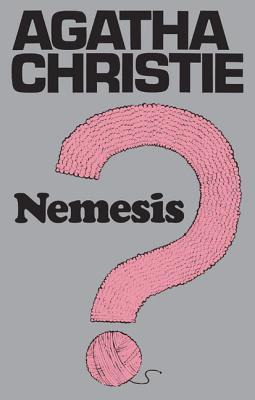
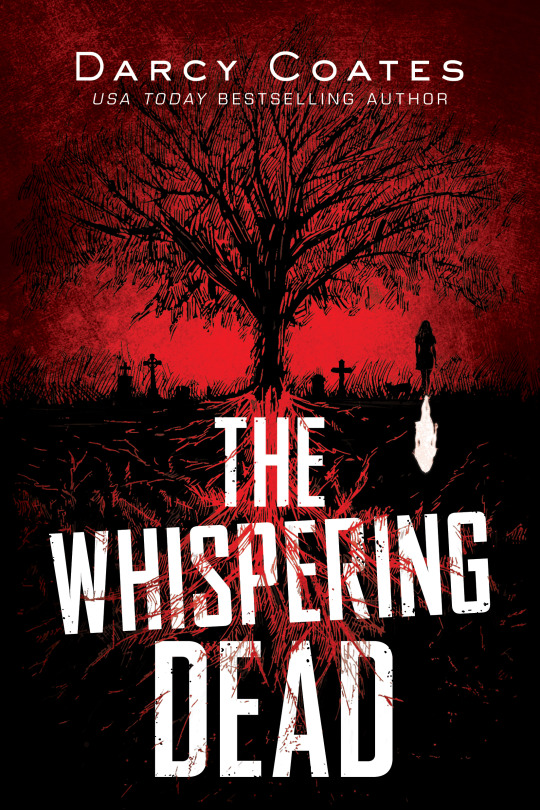

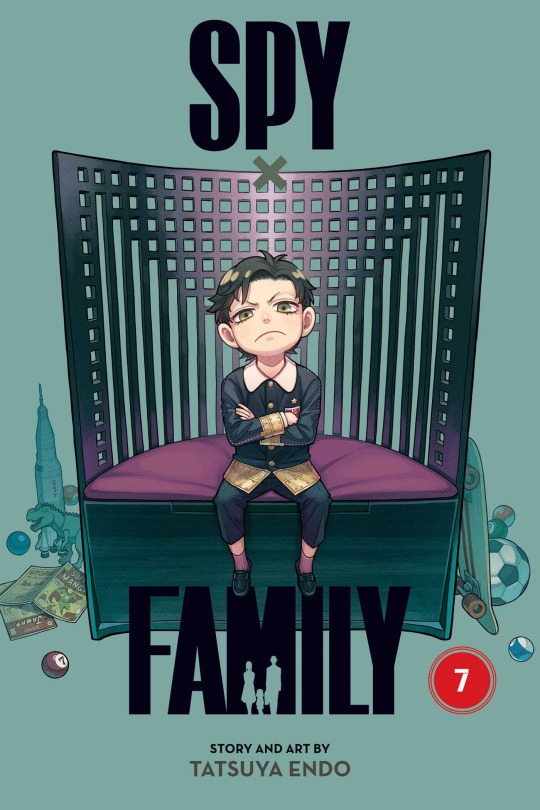


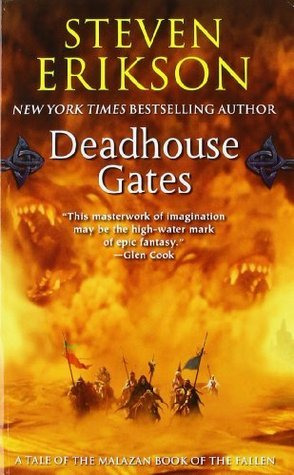


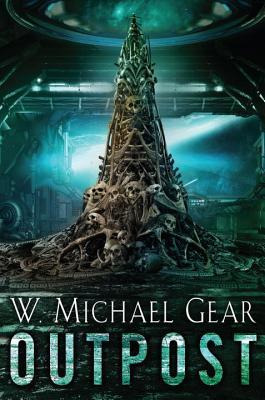
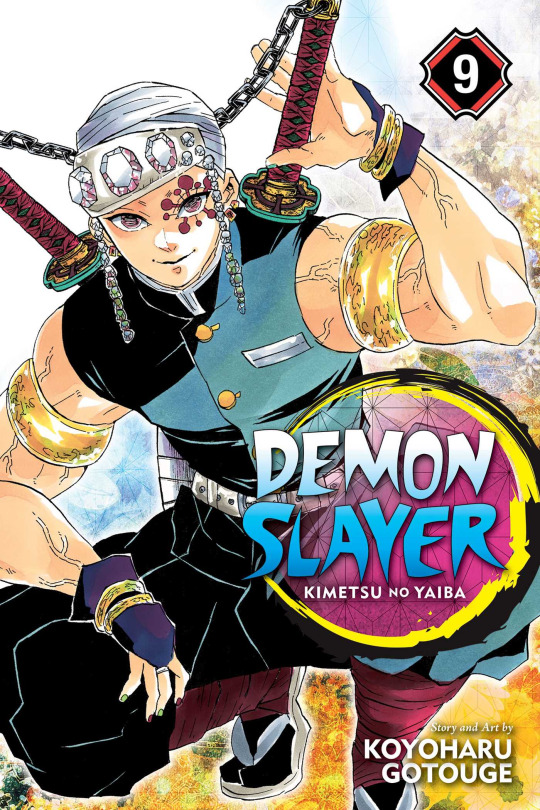
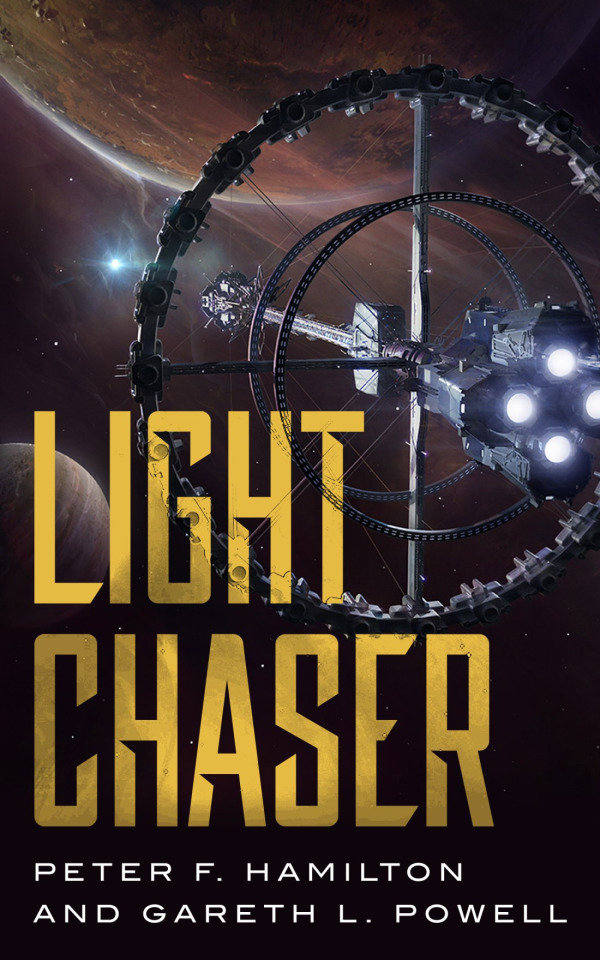

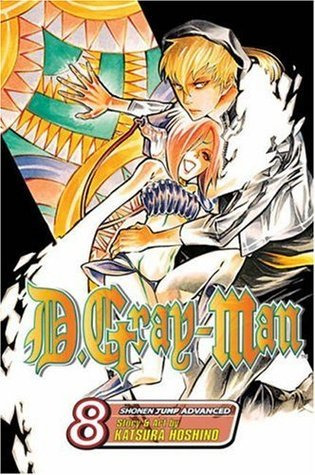
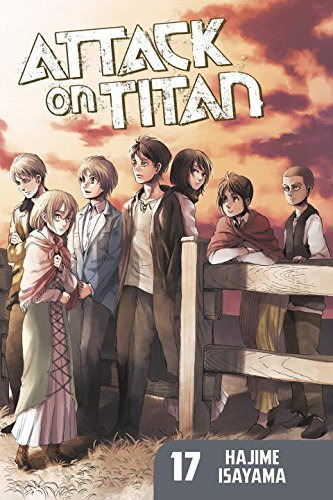



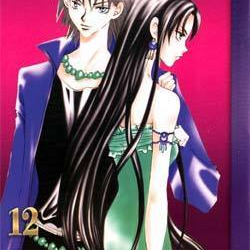
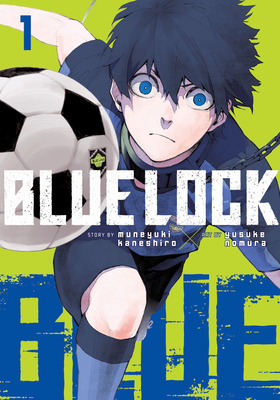
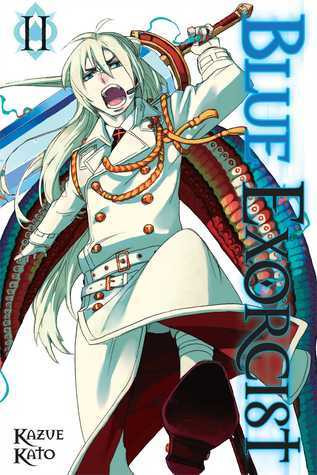
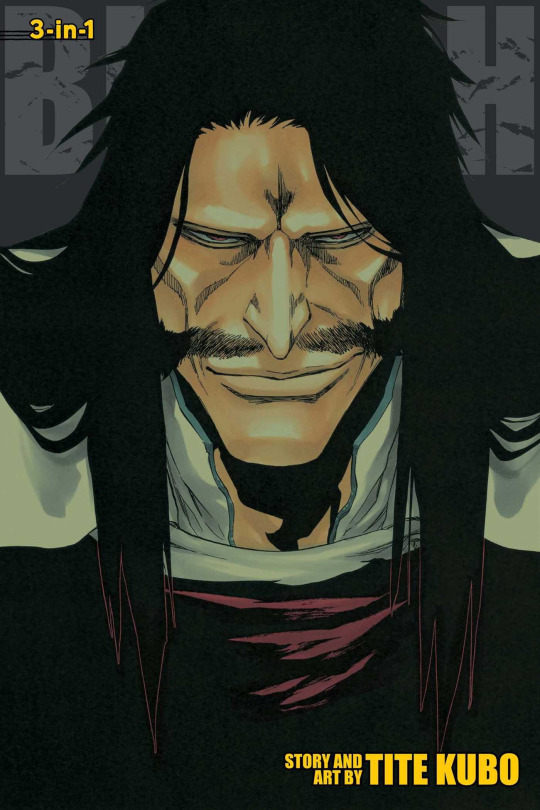

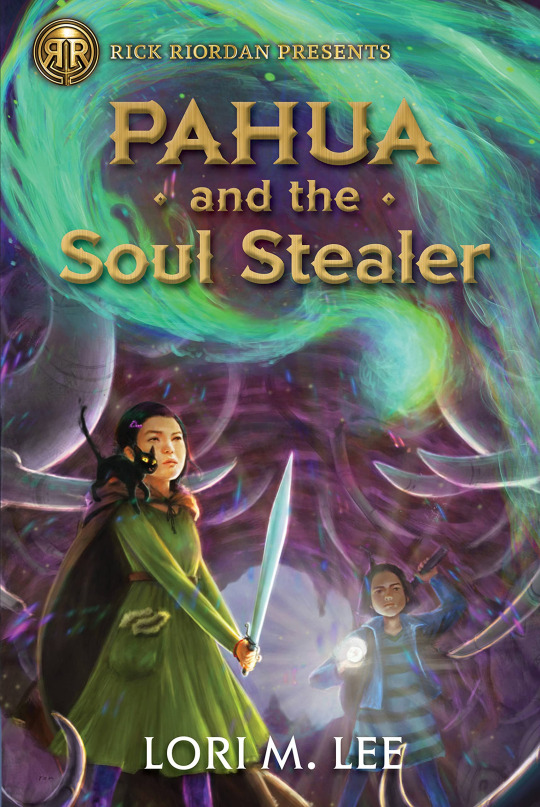
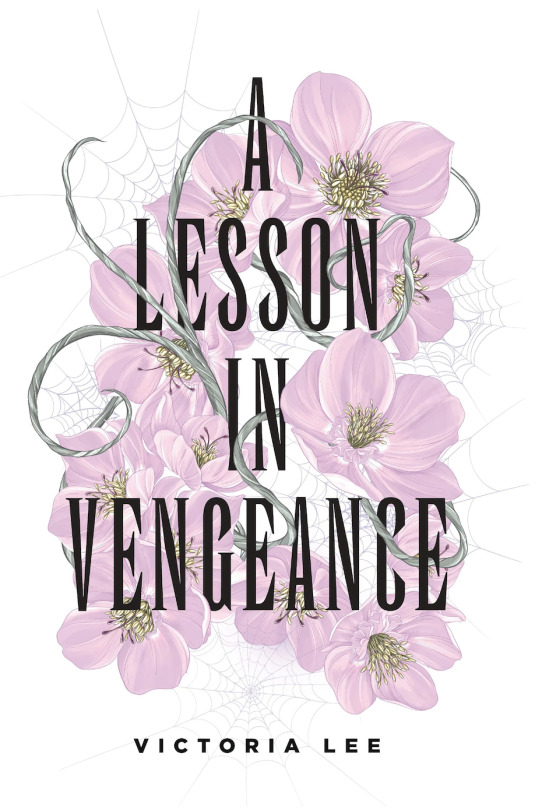
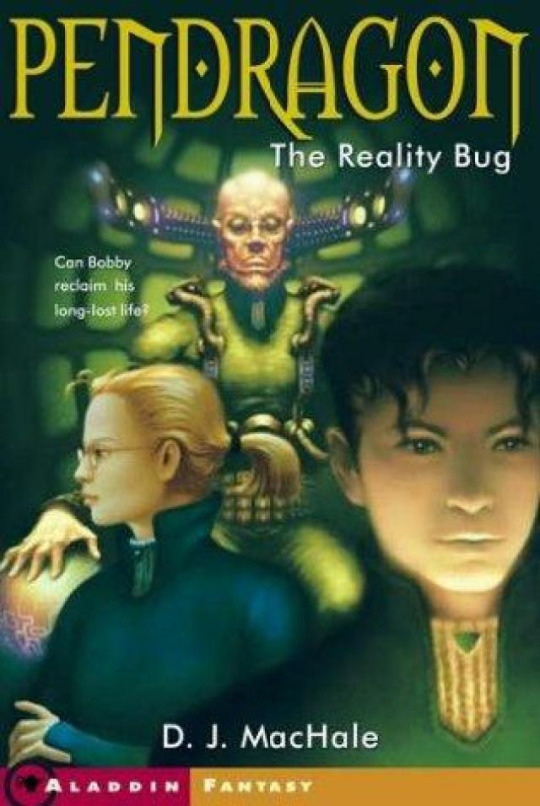
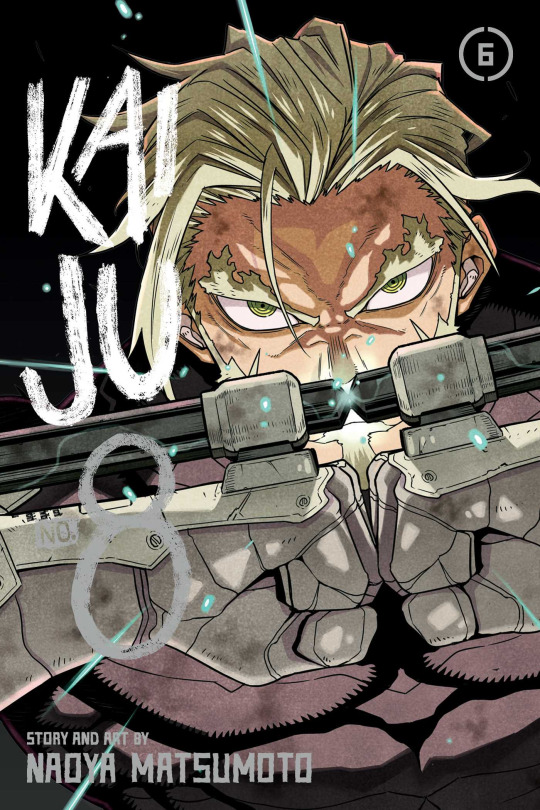



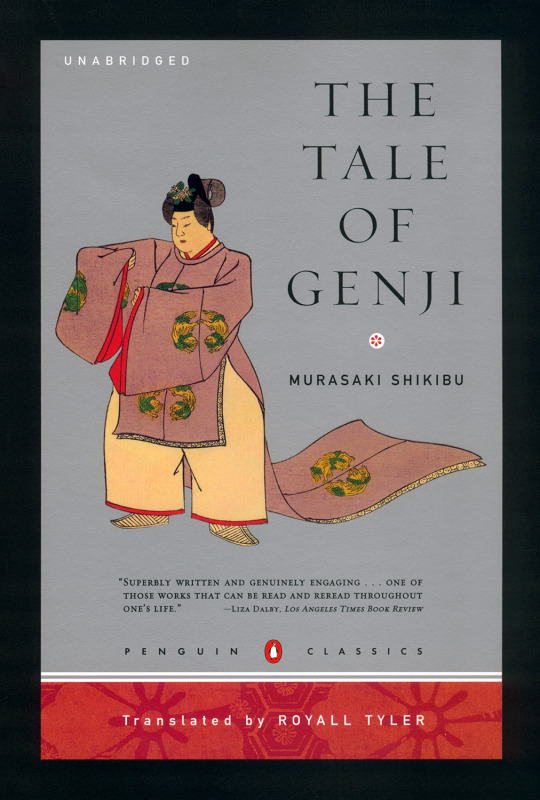
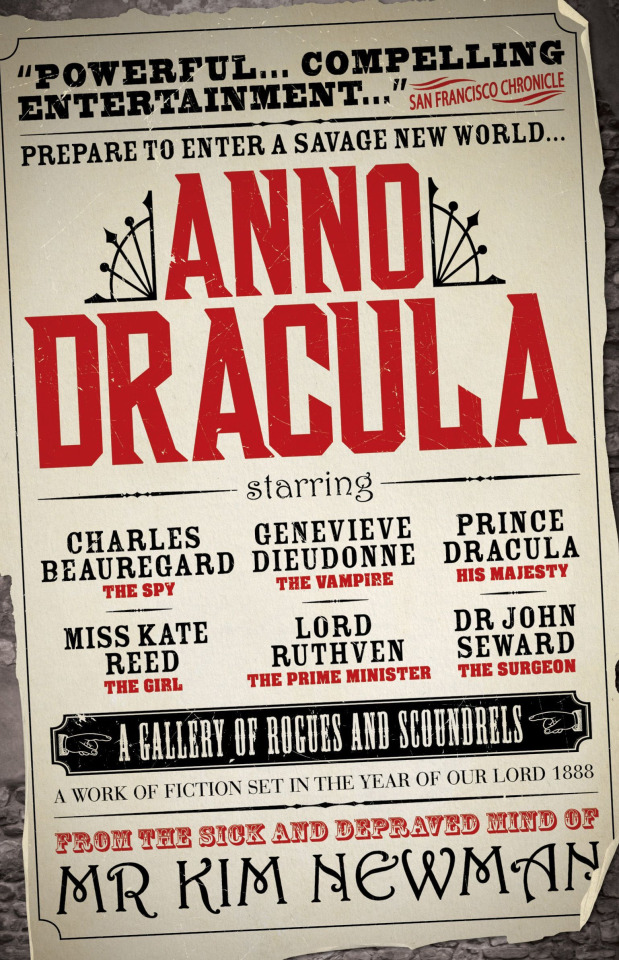



*the following are the harry potter books, I am re-reading them but also so we are clear I do not support JKRowling in anyway.
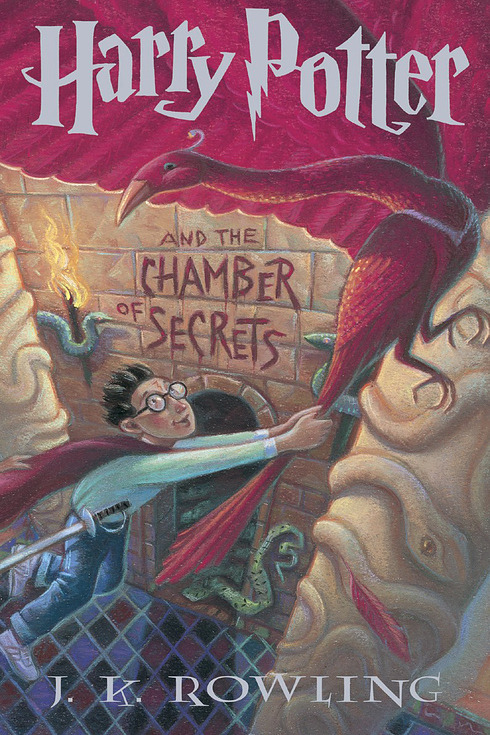
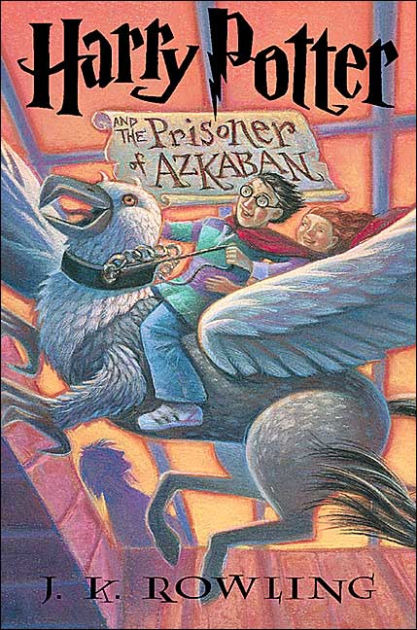

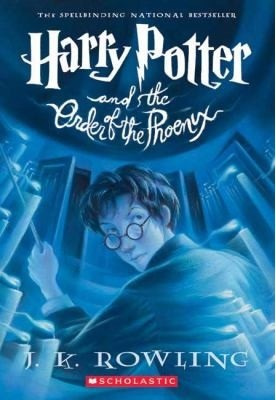
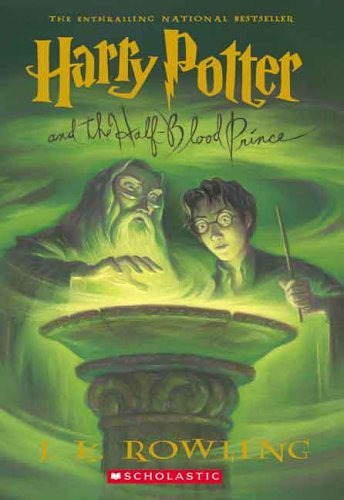

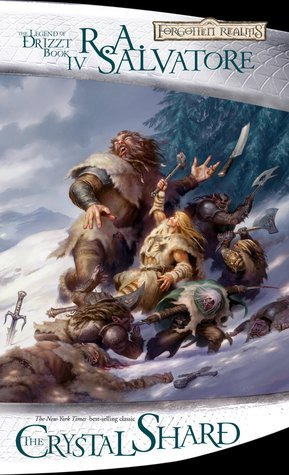
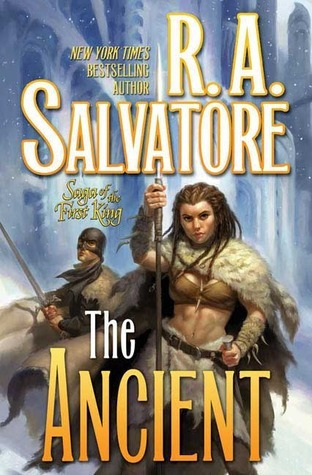



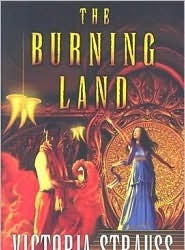
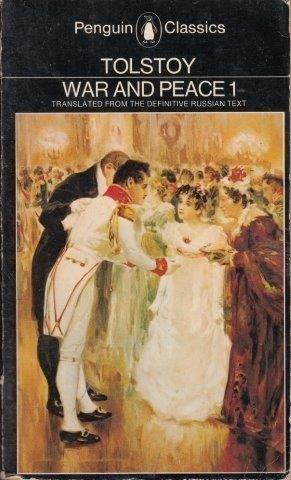
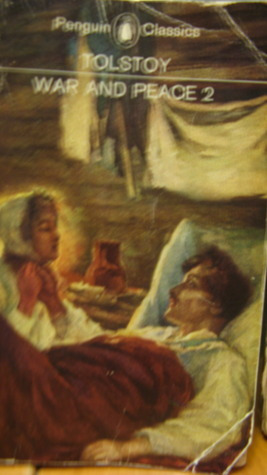
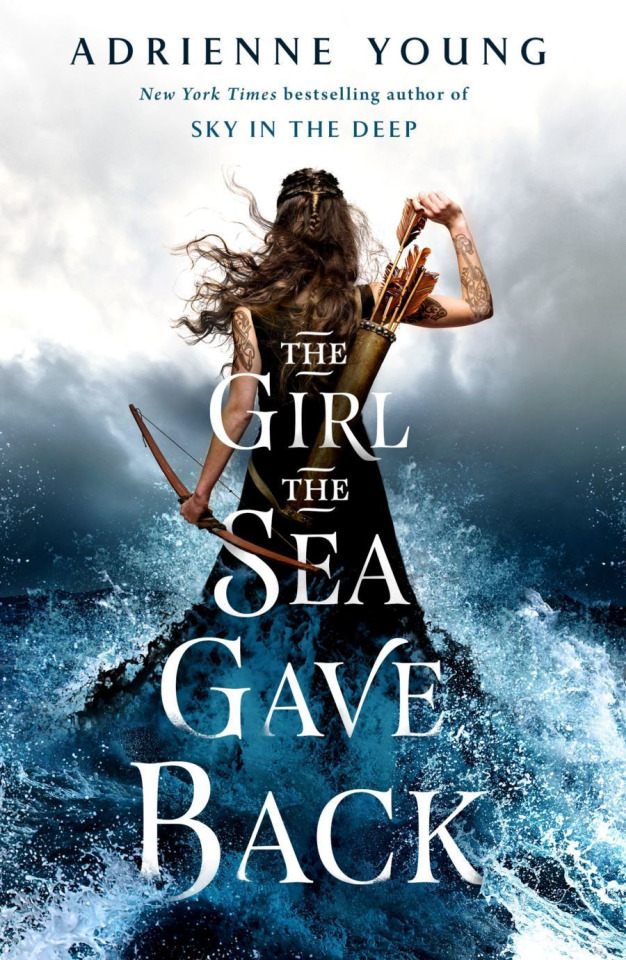
#mid-year book freak out tag#2023#booklr#Spinning Silver#Naomi Novik#Mysteries of Thorn Manor#Margaret Rogerson#Witch King#Martha Wells#System Collapse#A Bride's Story 14#Kaoru Mori#Horrid#Katrina Leno#Jena#Wildwood Dancing#Juliet Marillier#Frieren - Beyond Journey's End#Kanehito Yamada#Tsukasa Abe#Alice in Wonderland 1933
5 notes
·
View notes
Text

@boopboopboopbadoop if you’d like to see the rest of them :)
June 2022’s 38th Win A Commission story is Wildwood Dancing, by Juliet Marillier! I’ve adored this story since I was nine, ever since I ‘accidentally’ wandered into the teen section at the library lol. If you’d like to see the first chapter, see the rest of my art, and my notes, please
Wildwood Dancing will take you to another time and indeed another world. For proper pronunciation of names and for details about select Romanian terms, please read this first section. (End of original note by the author)
It is not the full version, as I’ve only included terms that appear in this chapter. Also, to those using screen readers, it is unlikely your readers will pronounce everything as it should be - sorry. There is also a character who speaks without quotation marks or words like ‘said, replied, shouted,’ etc etc. Visually, I’ve made his speech different, but I’m unsure of how to audibly apply this difference without changing the text. If you have any ideas or think it would ultimately be better to post a screen reader friendly option, please let me know.
Also, should I start doing image IDs for my illustrations within the stories? I rarely change a scene described in the story, and I often go into artistic choices within the notes. Is that too inaccessible? Thanks for any feedback! (End of note by me, the following is the pronunciation dictionary for the Romanian terms.)
Braşov A merchant town in central Transylvania. Pronounced Brah-shove
Ciorbǎ Traditional Romanian broth. Pronounced chor-buh
Constanta A trading port on the Black Sea coast. Pronounced Kahn-stahn-tsah
Piscul Dracului Devil’s Peak. Pronounced Pis-kul Drah -koo-looy
Tara Romǎneascǎ A region south of Transylvania, also known as Wallachia. Pronounced Tsah-rah Roh-muh-neeyes-kuh
Taul Ielelor Lake of the Iele. Iele are female spirits who lure folk to their doom. Pronounced Tah-ool YeHeh-lor
Tuicǎ Plum brandy. Pronounce tswee-kuh
Vǎrful cu Negurǎ Storm Heights. Pronounced Vur-fool koo Neh-goo-ruh
Voivode The head of a Transylvanian territory; princeling. Pronounced voh-yeah-vode
Anatolie Ah-nah-toh-yeeah
Bogdana Bohg-dah-nah
Cezar Cheh-zahr
Costi, Costin Koh-tee, Kohs-teen
Dräguta Druh-goo-tsah
Florica Flo-ree-kah
Gogu Goh-goo
Grigori Gree-gohrree
Ileana Eel-leh-ah-nah
Iulia Yoolee-ah
Jena, Jenica Jeh-nah, Jeh-nee-kah (J pronounced like g in mirage)
Marin Mah-reen
Nicolae Nee-koh-lie-eh (lie & sky rhyme)
Paula PowHah
Petru Peh-troo
Salem bin Afazi Sah-lem bin Ah-fah-zee
Sandu Sahn-doo
Stela Stel-ah
Tati, Tatiana Tah-tee, Tah-tee-ahrnah
Teodor The-oh-dor
I’ve heard it said that girls can’t keep secrets. That’s wrong: we’d proved it. We’d kept ours for years and years, ever since we came to live at Piscul Dracului and stumbled on the way into the Other Kingdom. Nobody knew about it—not Father, not our housekeeper, Florica, or her husband, Petru, not Uncle Nicolae or Aunt Bogdana or their son, Cezar. We found the portal when Tati was seven and I was six, and we’d been going out and coming in nearly every month since then: nine whole years of Full Moons. We had plenty of ways to cover our absences, including a bolt on our bedchamber door and the excuse that my sister Paula sometimes walked in her sleep.
I suppose the secret was not completely ours; Gogu knew. But even if frogs could talk, Gogu would never have told. Ever since I’d found him long ago, crouched all by himself in the forest, dazed and hurt, I had known I could trust him more than anyone else in the world.
It was the day of Full Moon. In the bedchamber our gowns and shoes were laid out ready; combs, bags, and hair ornaments were set beside them. Nothing would be touched now, until the household was safely in bed. Fortunately, it was rare for Florica to come up to our room, because it was at the top of a flight of stairs, and stairs made her knees hurt. I did wonder how much Florica knew or guessed. She must have noticed how quiet we always were on the night of Full Moon, and how exhausted we were when we stumbled down to breakfast the next morning. But if she knew, Florica didn’t say a thing.
During the day we kept up our normal activities, trying not to arouse suspicion. Paula helped Florica cook fish ciorbă, while Iulia went out to lend a hand to Petru, who was storing away sacks of grain to last us over the winter. Iulia did not enjoy the hard work of the farm, but at least, she said, it made the time go more quickly. Tati was teaching Stela to read: I had seen the two of them ensconced in a warm corner of the kitchen, making letters in a tray of wet sand.
I sat in the workroom with Father, reconciling a set of orders with a record of payments. I was good with figures and helped him regularly with such tasks. The merchant business in which he was a partner with his cousin, whom we called Uncle Nicolae, kept the two of them much occupied. Gogu sat on the desk, keeping himself to himself, though once or twice I caught his silent voice—the one only I could hear.
You’re upset, Jena.
“Mmm,” I murmured, not wanting to get into a real conversation with him while both Father and his secretary, Gabriel, were in the room. My family didn’t truly believe that I sometimes knew what Gogu was thinking. Even my sisters, who had long ago accepted that this was no ordinary frog, thought that I was deluding myself—putting my own words into the frog’s mouth, perhaps. I knew that was wrong. I’d had Gogu since I was a small girl, and the things he told me definitely didn’t come from my own head.
Don’t be sad. Tonight is Full Moon.
“I can’t help it, Gogu. I’m worried. Now hush, or Father will hear me.”
Father was trying to write a letter. He kept coughing, and in between bouts he struggled to catch his breath. Tomorrow he would be leaving on a journey to the port of Constanţa, in the milder climate of the Black Sea coast. His doctor had told him, sternly, that if he tried to get through another winter at Piscul Dracului in his present ill health, he would be dead before the first buds opened on the oaks. We five sisters would be looking after the place on our own, right through the winter. Of course, Uncle Nicolae would help with the business, and Florica and Petru with the house and farm. It was not so much the extra responsibility that troubled me. Father was away often enough on business and we had coped before, though not for so long. What chilled me was the thought that when we said goodbye in the morning, it might be forever.
At supper we were all quiet. I was thinking about what Father had confided to Tati and me earlier. Up till then, none of us had mentioned the possibility that Father might die of this illness, for to say that aloud would be to put the unthinkable into words. But Father had wanted his eldest daughters to be prepared for whatever might happen. Should he die before any of us girls married and bore a son, he’d explained, both Piscul Dracului and Father’s share of the business would go to Uncle Nicolae, as the closest male relative. We were not to worry. If the worst should occur, Uncle Nicolae would see we were provided for.
Uncle Nicolae’s family home was called Vǎrful cu Negurǎ: Storm Heights. His house was quite grand, set on a hillside and surrounded by birch and pine forest. He ran a prosperous farm and a timber business, as well as the trading ventures that had made him wealthy. When we were little, we had lived in the merchant town of Braşov, and Vǎrful cu Negurǎ had been a place we visited as a special treat. It was hard to say what I had loved best about it: the dark forest, the forbidden lake, or the excitement of playing with our big cousins, who were both boys.

But there was no doubt at all what Father had loved. Next door to Vǎrful cu Negurǎ was Piscul Dracului, Devil’s Peak. Father had first seen the empty, crumbling castle, set on a high spur of rock, when he was only a boy. Our father was an unusual kind of person, and as soon as he clapped eyes on Piscul Dracului he wanted to live there. There’d been nobody to inherit the ruin and the tract of wildwood that went with it; perhaps the many strange tales attached to the place had frightened people away. The owner had died long ago. Florica and Petru had been custodians of the place for years, looking after the empty chambers and eking out a living from the small farm, for they were hardworking, thrifty folk.
Father had waited a long time to achieve his dream. He had worked hard, married, and fathered daughters, bought and sold, scrimped and saved. When he’d set enough silver aside from his merchant ventures, trading in silk carpets and bear skins, spices and fine porcelain, he’d quietly paid a large sum to an influential voivode, gone into partnership with Uncle Nicolae, and moved our family into Piscul Dracului.
I think Mother would have preferred to stay in Braşov, for she feared the tales folk told about the old castle. It looked as if it had grown up out of the forest, with an assortment of bits and pieces sprouting from every corner: tiny turrets, long covered walkways, squat round towers, arches, and flagpoles. The eccentric nobleman who had built it had probably been someone just like Father. People seldom ventured into the forest around Piscul Dracului. There was a lake deep within the wildwood, a place unofficially known as the Deadwash, though its real name was prettier: Tǎul Ielelor, Lake of the Nymphs. Every family had a dark story about the Deadwash. We got ours soon after we moved into the castle. When I was five years old, my cousin Costi—Uncle Nicolae’s eldest son—drowned in Tǎul Ielelor. I was there when it happened. The things folk said about the lake were true.
Before Father became so ill, Tati and I had scarcely given a thought to such weighty matters as what might happen to Piscul Dracului, with no son to inherit our father’s property. My elder sister was a dreamer, and I had a different kind of future in mind for myself: one in which I would work alongside my father, traveling and trading and seeing the world. Marriage and children were secondary in my scheme of things. Now—with Father’s cough ringing in our ears, and his white face regarding us across the supper table—they had become a frightening reality. I remembered Aunt Bogdana saying that sixteen was the ideal age for a young woman to wed. Tati was already in her seventeenth year; I was only one year younger.
Father went off to bed as soon as the meal was over; he’d hardly touched his food. The others disappeared to our bedchamber, but I waited for Florica to bank up the fire in the big stove and for Petru to bolt the front door, and for the two of them to retire to their sleeping quarters. Then it was safe, and I ran up the stairs to our chamber, my worries set aside for now, my heart beating fast with an anticipation that was part joy, part fear. At last it was time.
The long room we sisters shared had four round windows of colored glass: soft violet, blood-red, midnight-blue, beech-green. Beyond them the full moon was sailing up into the night sky. I put Gogu on a shelf to watch as I took off my working dress and put on my dancing gown, a green one that my frog was particularly fond of. Paula was calmly lighting our small lanterns, to be ready for the journey.
With five girls, even the biggest bedchamber can get crowded. As Tati fastened the hooks on my gown, I watched Iulia twirling in front of the mirror. She was thirteen now, and developing the kind of curvaceous figure our mother had had. Her gown was of cobalt silk and she had swept her dark curls up into a circlet of ribbon butterflies. We had become clever, over the years, in our use of the leftovers from Father’s shipments. He was good at what he did, but buying Piscul Dracului had eaten up a lot of his funds and, even in partnership with his wealthy cousin, he was still making up for lost ground. I saw the books every day—he had been unable to conceal from me that finances remained very tight. We sisters had to improvise. We made one new dancing gown anytime a cargo contained a little more of a certain fabric than the buyer had requested. I wore Tati’s hand-me-downs; Paula wore mine. Iulia, with her fuller figure, did rather better, because she could not fit into either Tati’s clothes or mine. All the same, she complained; she would have liked a whole wardrobe of finery. Tati was clever with her needle, and adjusted old things of Mother’s to fit her. Mother was gone. We had lost her when our youngest sister was born. Stela was only five—easy to dress.
Paula had finished lighting the lamps. Now she crouched to bank up the fire in our little stove and ensure its door was safely shut. One year Iulia’s junior, Paula was our scholar. While I was good at figures, she shone in all branches of learning. Our village priest, Father Sandu, came up to Piscul Dracului once a month to provide Paula with private tutoring—I shared in the mathematical part of these lessons—and went home with a bottle of Petru’s finest ţuicǎ in his coat pocket. Most folk believed education of that kind was wasted on girls. But Father had never cared what people thought. Follow your heart was one of his favorite sayings.
“What is it, Jena?” Paula had noticed me staring at her. The heat from the stove had flushed her cheeks pink. Her dark eyes were fixed on me with an assessing look. Tonight she was wearing dove-gray, with her spectacles on a chain around her neck, and her brown curls disciplined into a neat plait.
“You look pretty tonight,” I said. “So do you, Stela.” Stela, our baby, was rosy-cheeked and small, like a little bird, maybe a robin. Her hair, the same ebony as Tati’s, was wispy and soft, and tonight it was tied back with rose-pink ribbons to match the gown Tati had made for her. She was standing by the oak chest, jiggling up and down in excitement.
“What about your hair, Jena?” asked Tati, doing up my last hook. “It’s all over the place.”
“Never mind,” I told her, knowing nobody would be looking at me while she was anywhere near. My elder sister’s gown was a simple one of violet-blue that matched her eyes. Her hair rippled down her back like black silk. Tati didn’t need jewelry or ribbons or any sort of finery. She was as lovely as a perfect wildflower. It always seemed to me a generous fairy must have presided over her christening, for Tati was blessed with the kind of beauty that draws folk’s eyes and opens their minds to dreams.
I didn’t make a big effort with my appearance. When people commented on our family of sisters, Tati was always the beautiful one. If they noticed me at all, they called me sensible or practical. I had bushy hair, brown like Paula’s, which refused to do what I wanted it to, and eyes of a color somewhere between mud and leaf. My figure was a lot more straight-up-and-down than Iulia’s, even though I was two years her elder. The one special thing about my green gown was the pocket I had sewn into it for Gogu, since he needed a safe retreat if he got tired or upset. Tonight the only ornament I carried was the frog himself, sitting on my shoulder. You look lovely, Jena. Like a forest pool on a summer’s day.
Tati darted across to make sure our door was bolted. Then, by the shifting light of the lanterns, we moved to the most shadowy corner of the chamber: the place where we had once sat playing games by candlelight and made the most astonishing discovery of our lives.
We dragged out the heavy oak chest from against the wall and set our lanterns on it so their light was cast into the little alcove where the chest had been, an indentation that wasn’t even big enough to store a folded blanket in.
“Come on,” Iulia urged. “My feet are itching for a dance.”
The first time we had done this, in our earliest days at Piscul Dracului—when I was only six, and Stela was not yet born—Tati and I had been amusing the younger ones by making shadow creatures on the wall: rabbits, dogs, bats. At the moment when all our hands had been raised at once to throw a particular image on the stones, we had found our forest’s hidden world. Whether it had been chance or a gift, we had never been sure.
It made no difference that we had done this over and over. The sense of thrilling strangeness had never gone away. Every Full Moon, our bodies tingled with the magic of it. The lamp shone on the blank wall. One by one, we stretched out our hands, and the lantern light threw the silhouettes onto the stones. One by one, we spoke our names in a breathless whisper:
“Tatiana.”
“Jenica.”
“Iulia.”
“Paula.”
“Stela.”
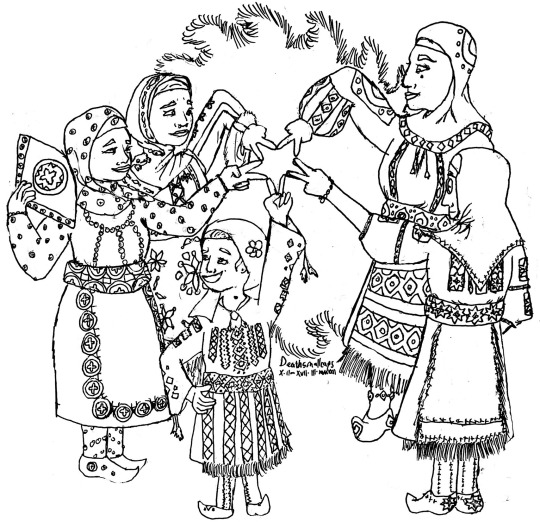
Between the shadows of our outstretched fingers, a five-pointed star appeared. The portal opened. Instead of a shallow alcove, there was a little archway and a flight of stone steps snaking down, down into the depths of the castle. It was dark, shadow-dark.… The first time it ever happened, back when there were only four of us, we had clutched one another’s hands tightly and crept down, trembling with excitement and terror. For the others the fear had dissipated over the years; I could see no trace of misgiving in any of them now, only shining eyes and eager faces.
I was different. The magic drew me despite myself; I passed through the portal because it seemed to me I must. There were eldritch forces all around, and the only thing sure was that the powers of the wildwood were unpredictable. It was curious: from the first I had felt that without me, my sisters would not be safe in the Other Kingdom.
Lanterns in hand, we made our way down the winding stairway, holding up our long skirts as our shadows danced beside us on the ancient stone walls. It was so deep, it was like going to the bottom of a well. Gogu rode on my shoulder down the twists and turns of the stair, until we came to the long, arched passage at the bottom.
“Hurry up!” urged Iulia, who was at the front of the line.
Our slippers whispered on the stone floor as we glided along under the carved extravagance of the roof. Here, there were enough gargoyles and dragons and strange beasts to decorate the grandest building in all Transylvania. They clung to the corners and crept around the pillars and dripped from the arches, watching us with bright, unwavering eyes. Subterranean mosses crawled over their heads and shoulders, softening their angular forms with little capes of green and gray and brown. The first time we saw this Gallery of Beasts, Tati had whispered, “They’re not real, are they?” and I had whispered back, “Just nod your head to them, and keep on walking.” I had sensed, even then, that respect and courtesy could go a long way to keeping a person safe in a place such as this.
As we passed now, I felt something jump onto my shoulder—the one not occupied by Gogu—and cling there, its needle claws pricking my skin through the soft fabric of the green gown. It was doing its best to look like a frog, rolling up its long tail and bulging its eyes, while casting surreptitious glances at Gogu.
The frog tensed. Interloper.
The little creature poked out a forked tongue, hissing.
“Lights out!” ordered Iulia, and we each covered our lanterns in turn. As our eyes adjusted to the sudden darkness, a pale expanse came into view ahead of us: the mist-wreathed waters of a broad lake, illuminated by the moon. Through the vaporous cloud we could see the bobbing torches of those who were waiting to escort us on the last part of our journey.
“Ooo-oo!” Iulia called in a falling cadence. “Ooo-oo!”
The little boats came, one by one, out of the tendrils of mist—high-prowed and graceful, each shaped in the form of a creature: swan, wyvern, phoenix, wood duck, and salamander. In each stood a figure, propelling the craft by means of a slender pole: push and lift, push and lift. The response to Iulia’s call came in five voices, each different, each as uncanny as the others. Our guides were what they were; the only human creatures in this midnight realm were ourselves.
The boats pulled in to the shore. The boatmen stepped out to help us board. The next part, my frog didn’t like. He began to quiver in fright, a rapid trembling that went right through his body. I was used to this; he did it every time. I held him against my breast and, as I climbed into the boat, I murmured, “It’s all right, Gogu, I’ve got you. We’ll be there soon.”
Tǎul Ielelor: the Deadwash. This was the place where Costi had drowned. Our mother had warned us about it, over and over: we should never go there, for to do so was to risk harm at the hands of the vengeful fairy folk who had robbed us of our cousin. And yet, since the very first time the portal had opened for us, the realm that lay beyond had shown us warmth and kindness, open arms, and welcoming smiles. I was still cautious; I did not have it in me to trust unconditionally. All the same, it was impossible to believe that the person who had drowned our cousin was one of those greeting us on our nocturnal journeys.
The folk of the Other Kingdom had their own name for this expanse of shining water—at Full Moon, they called it the Bright Between. The lake waters spanned the distance between their world and ours. Once we set foot in their boats, we were caught in the magic of their realm.
Time and distance were not what they seemed in the Other Kingdom. It was a long walk from Piscul Dracului to the Deadwash in our world—an expedition. Gogu and I had made that forbidden trip often, for the lake drew us despite ourselves. At Full Moon, the walk to Tǎul Ielelor was far shorter. At Full Moon, everything was different, everything was upside down and back to front. Doors opened that were closed on other days, and those whom the human world feared became friends. The Bright Between was a gateway: not a threat, but a promise.
It was all too easy to lose track of time in the Other Kingdom—to forget where you were and where you had come from. This might be the familiar forest, the same one in which Petru farmed our smallholding, and Uncle Nicolae harvested pines to sell for timber, and Cousin Cezar went out hunting in autumn. It was the same and not the same. When we crossed the Bright Between, we entered a realm that existed at the same time and place as ours, with the same trees and hillsides and rocks. But it was not open to humankind, except for those lucky few who found a portal and its key. And the folk who lived there lived by their own laws, laws not at all like those of the human world. Any aged man or woman with stories to tell knew that. There were tales about men who’d gone through a portal and spent a night among the forest folk, and when they’d come back again, a hundred years had passed, and their wives and children were dead and buried. There were stories about people who had visited the fairy revels and been driven right out of their minds. When they returned to the human world, all they did was wander around the forest in a daze, until they perished from cold or hunger or thirst. There were still more accounts of folk who had gone into the forest and simply disappeared.
So, although we believed such misfortunes would never befall us—for we were constantly assured by the folk of the Other Kingdom that they loved and welcomed us—we had made a set of rules to keep us safe. If anything went wrong, the others were to come to Tati or me immediately: they were to do as we told them, without question. There was no eating or drinking while we were in the Other Kingdom, except sips from the water bottle one of us always brought from home. There was no leaving the glade where the dancing took place, however tempted we might be to wander off down beguiling pathways into the moonlit forest. We must keep an eye on one another, keep one another safe. And when Tati or I said it was time to go home, everyone must go without argument. Those rules had protected us through nine years of Full Moons. They had become second nature.
The boats swept across the Bright Between. As we passed a certain point, the air filled with a sweet, whispering music. Swarms of small bright creatures that were not quite birds or insects or fairy folk swooped and rose, hovered and dived around us, making a living banner to salute our arrival. Underwater beings swam beside our craft, creatures with large, luminous eyes, long hands, fronded tails, and glowing green-blue skin. Many dwelled in or on Tǎul Ielelor: ragged swimmers resembling weedy plants, their gaze turned always up, up to the surface; the beguiling pale figures of the Iele, from whom the lake got its name, reaching out graceful white arms from bank or islet or overhanging willow. Should an unwary man from our world be passing, they would seek to entice him from his path forever. As we neared the opposite shore, an assortment of tiny folk rowed out from the miniature islands to join us, in a bobbing flotilla of boats made from nutshells and dried leaves and the discarded carapaces of beetles. We reached the far shore, and my escort—who was three feet high and almost as wide, with a scarlet beard down to his boot tops—handed me out. He made a low bow.
“Thank you,” I said as the gargoyle made a flying leap from my shoulder, then scampered off into the undergrowth.
“Delighted to be of service, Mistress Jenica. I’ll expect you to return the favor, mind.”
“You shall have the first dance, of course, Master Anatolie,” I told him.
The dwarf grinned, revealing a set of jeweled studs in his front teeth. “I’ll match you step for step, young lady. You’ll find me a more satisfactory partner than that slippery green friend of yours. He’s shaking like a jelly—wouldn’t know a jig if it jumped up and bit him.”
Gogu stopped shivering instantly. I could feel bunched-up irritation in every part of him.
“You’ve upset him,” I said. “Frogs have feelings, too, you know.”
The dwarf bowed again. “No offense,” he said, his eyes on Gogu. “It should be an interesting night. We’ve got visitors. Night People from the forests of the east.”
A bolt of horror shot through me and I stopped walking. Ahead of us, my sisters and their assorted escorts were disappearing along the broad, leaf-carpeted track that led away under tall trees, following the sweet call of a flute. The branches were festooned with colored lights shaped like birds and beetles and flowers. “Night People?” I echoed, and heard the tremor in my voice. Fragments of dark stories crept into my mind: tales of blood and violence, of evil deeds and terrible retribution.
“Nothing to worry about,” said Anatolie offhand.
“Yes, it is!” I protested. “Florica, who works for us, says they come at night and bite people in their beds. She says the only thing they drink is human blood.” My sisters were too far ahead to be called back.
“This would be the same Florica who said all dwarves were liars and thieves?” Anatolie asked, feet planted apart and hands on hips. His cloak was ankle length and lined with what appeared to be bear skin.
“Well, yes,” I said.
“The same Florica who told you not to go too close to the Deadwash or you’d be scooped up in the magic fishing net of Drǎguţa, the witch of the wood?”
“Yes, but … but Night People, everyone says—” I stopped myself. Anatolie was right. If I had never met one, it was unfair to judge on the basis of stories.
“You and your sisters are quite safe here,” the dwarf said as we started walking again. “Hasn’t the forest queen herself allowed you to visit her revels these nine years of Full Moons? Believe me, if her protection did not stretch out over the five of you, you would not be here now.”
“I don’t like the sound of that at all,” I said, wondering whether he meant we would have met the same fate as the foolish folk in the stories: dead, mad, or vanished.
“The Night People will not touch you while Ileana is queen of the wildwood,” Anatolie said. “You have my word.”
“Thank you,” I said, but I was full of doubt. I could not remember hearing a single good thing about the Night People, and I had no wish to meet even one of them. They’d never been to Dancing Glade before; at least, not when we were there. I thought about garlic, and silver crosses, and everything else folk used to keep such dangerous forces at bay. I hadn’t brought a thing to protect myself or my sisters.
When we reached the glade, the festivities were in full swing. A circle of autumn-clad trees sheltered the grassy sward, their branches hung with still more lanterns. These cast a warm light over the brightly clad revelers, whose gowns and masks, robes and jewels filled the open space with a swirling mass of color. Above them, creatures performed aerial dances of their own, some borne on delicate, diaphanous wings, some on leathery, creaking membranes. Some of the guests were tall enough to bump their heads on the lanterns; some were so tiny, one had to take care not to step on them. I saw my gargoyle perched on the branch of a holly bush, waving its paws in time with the music and beaming beatifically.
The musicians sat on a raised platform at the far end, under the biggest oak. The instruments were the same as the ones in the village band—flute, drum, goat-pipes, fiddle—and yet they were not quite the same. Each possessed a strangeness that set it apart. What ordinary drum cries out poetry when beaten? What flute plays three tunes at once, each blending perfectly with the others? As for the goat-pipes, they had something of the voice of the creature whose skin had provided their air bag, plaintive and piercing. The fiddle soared like a lark.
The sound of this band was intoxicating to the ears, the kind of felicitous blend a village musician aspires to and may achieve once in a lifetime. It made feet move faster, pulses race, faces flush. It set hearts thumping and coaxed smiles from the most somber mouths. It was a music we would keep on hearing in our dreams, days after Full Moon was over and we were gone from the Other Kingdom.
Iulia was already out there, dark hair flying, her face wreathed in smiles. Tati danced more sedately, her hand in that of tall Grigori, an imposing figure with long, twisted dark hair. It was said he was a kinsman of Drǎguţa, the witch of the wood.
Paula was not dancing, but had gone straight to her usual group of friends, a clutch of witches, astronomers, and soothsayers clad in long, raggedy robes and swathing, vaporous cloaks. All wore hats—I saw tall pointed structures decorated with stars, and scholarly felt caps, and here and there a mysterious shadowy hood. They were gathered around a table under the trees, deep in debate as always, their arguments fueled by a continuous supply of ţuicǎ. Paula was seated among them, waving her hands about as she expounded some theory.
Stela was with the smallest folk, down near the musicians. There was a double ring of them, weaving in and out and around about in a dance of their own. Some had wings, some horns, some feathers, and some shining, jewel-bright scales. They were chattering like a mob of little birds as they pranced to and fro, and still managing to get every step perfect. We’d all started here; as we grew older, we had been welcomed by different folk, collected by different ferrymen, and permitted to mix more widely. Dancing Glade had its own set of rules.
“Hello, Jena!” my little sister called, waving wildly. Then she plunged back into the circle.
The pattern of the night was always the same. The revels would begin with chain dances, circle dances, devised so everyone could join in, the big and small, the clumsy and dainty, side by side. We sisters had been part of this since the first time we came across to the Other Kingdom, when kindly folk of all shapes used to take our small hands and guide us through the steps. We needed no guidance now, for we were skilled in all the dances. The first was always done with our boatmen by our sides—it was their privilege to lead us onto the sward. At some point in the evening the queen of the forest would hold formal court; this was the opportunity for newcomers to be greeted, petitions made, questions asked. Later on, the music would change, and with it the mood of the crowd. That was the time for couples to dance slow measures in each other’s arms, floating in their own small worlds. By then my youngest sisters would be getting tired, and we would all sit under the trees and watch until it was time for the last dance—a grand gathering of the entire crowd, in celebration of Full Moon. Then we would pass across the Bright Between once more, and go home to another month of hard work and dreaming.
The music was making my feet move even before I trod on the sward. I took the dwarf’s hand and we threw ourselves into a jig. The drumbeat made my heart race; the goat-pipes seemed to speak to something deep inside me, saying, Faster, faster! You’re alive! Anatolie gripped my hand tightly as we ran and jumped, as we turned, and swayed, and pointed our toes. Gogu had retreated to the pocket, where he was safe from falling and being trampled by the multitude of stamping, hopping, kicking feet. When the dance was over, I fished him out and set him on my shoulder once more.
“All right?” I whispered.
If you could call being shaken about like a feather duster “all right,” I suppose so.
I was looking around the glade as my heartbeat slowly returned to normal. “Where are the Night People?” I asked Anatolie.
“They will come. Wait until the moon moves higher; wait until you see her between the branches of the tallest oaks. Then you’ll catch a glimpse of them, around the edges.”
“Don’t they dance?”
Anatolie grinned. “I’ll bet you a silver piece to a lump of coal that you can’t get one of them to step up and partner you,” he said. “They stick to their own kind, those black-cloaked streaks of melancholy. They don’t come to enjoy themselves, but to observe—to take stock.”
Out of long habit, because I was the sensible sister, I checked on the others, one by one, to make sure they were safe. Over at the far side of the sward I saw Stela, now playing a chasing game with her bevy of small companions. Those that could fly had a distinct advantage. Iulia was with a circle of young forest men and women. When I had first seen such folk, I had thought of them as fairies—though they were far taller and more elegant than the tiny figures of my childhood imagination—with their garments constructed of leaves and cobwebs, vines, bark, and feathers, and their features unsettlingly not quite human. There was no sign of Paula, but she would still be at the scholars’ table.
There was a ripple of movement. A fanfare rang out and the crowd parted before an imposing figure clad in a gown that seemed fashioned of iridescent gossamer. It was Ileana, the hostess of these celebrations and queen of the forest people, sweeping across Dancing Glade. Folk said every bird of the wildwood had given one feather to make up her crown, which rose from her head in an exuberant crest. Her golden-haired consort, Marin, was a step behind her. This grand entrance was a feature of every Full Moon’s revels. Walking behind the queen and her partner tonight was a group of folk I had never seen before.
“That’s them,” Anatolie hissed. “Sour-faced individuals, aren’t they?”
I did not think the Night People were sour-faced, just rather sad-looking. They were extremely pale, their skin almost waxen in appearance, their eyes deep set, dark, and intense. All were clad in jet-black. The pair who led them was especially striking. The woman’s lips were narrow and bright crimson in color, whether by nature or artifice I could not tell. Her fingernails had been dyed to match. Both she and the man had bony, aristocratic features: well-defined cheeks and jaws; jutting, arrogant noses; and dark, winged brows. They made a handsome couple—he in billowing shirt, tight trousers, and high boots, she in a formfitting gown whose plunging neckline left little to the imagination.
I spotted Tati, standing in the crowd close by Ileana, her dark hair shining under the colored lights of the glade. The forest queen beckoned; my sister stepped forward and dropped into a low, graceful curtsy. A moment later Tati was being introduced to the new arrivals. I felt a sudden chill. If Ileana singled out anyone for this kind of attention, it was not the little human girls from Piscul Dracului but the most formidable of her own folk, such as the tall Grigori or the most powerful of the soothsayers. I saw the black-booted stranger lift Tati’s hand and kiss it in a cool gesture of greeting. Then the Night People seemed to drift away into the shadows under the trees.
Ileana and Marin were not the real power in the Other Kingdom. They presided over the revels and sorted out minor disputes between the forest folk. They made sure the daily life of the wildwood went on in its usual pattern. The folk of the Other Kingdom were often less than forthcoming when questioned about their realm and its rules, but Paula had picked up a great deal at the scholars’ table. We knew that the one who was the heart of it all—the one who held the ancient secrets and wove the powerful magic—was Drǎguţa, the witch of the wood. Drǎguţa had been in the forest since before the castle of Piscul Dracului sprang to life in the imagination of the eccentric voivode who built it. She had dwelt in the depths of the woods since these great oaks were mere sprouting acorns. Drǎguţa did not come to Full Moon dancing. She stayed in her lair, somewhere out in the wildest and least accessible part of the woods. If folk needed to ask her something, they had to go and find her, for she wouldn’t come to them.
Once, I had questioned whether Drǎguţa really existed at all. Only once. A chorus of horrified gasps and hisses had greeted my doubt—“Don’t say that!” “Shh.”—as if the witch were everywhere, watching and listening. Drǎguţa was real, all right, and folk’s fear of her was real fear. In our world, Florica spoke her name in a trembling whisper, and Petru crossed himself every time he heard it. For every boy or girl from our valley who had perished in the forest or drowned in the lake, there was a story about Drǎguţa and her minions, about hands coming up out of the water to drag the hapless under. For every crucifix the villagers had erected on the outskirts of the Piscul Dracului forest to keep evil spirits at bay, there was a tale about someone who had ventured too far and walked into the witch’s net. Perhaps it was not surprising that our castle had stood empty for so long.
The forest queen had finished introducing folk to her black-clad guests. Calling for the music to start up again, she moved out onto the sward with her hand in Marin’s. I danced with Grigori, whose alarming appearance tended to mask the fact that he was a model of courtesy. I danced with a forest man who had ivy twists for hair, and another clad all in cobwebs. The music wove its way into my blood and made my feet agile and my limbs supple. My head was full of colors and lights: I smiled at nothing in particular and felt that I was beautiful. Only when the earlier dances came to an end and folk stood about the edges of the sward while the band had a rest did I remember that Father was leaving in the morning. Once my mind escaped the lure of the dancing, once my body stopped bending and turning and swaying to the music’s enchantment, I found that I was thinking only of the long winter ahead, and how we would cope without him.
Something of my worry must have shown on my face. Grigori came over to ask what was troubling me. Anatolie offered the opinion that I must be unwell. Gogu showed his own awareness of my unease, snuggling up to my neck, under my hair. It’s all right, Jena. I’m here. It helped that he was close, for I felt suddenly cold and, surrounded as I was by folk making merry, curiously alone.
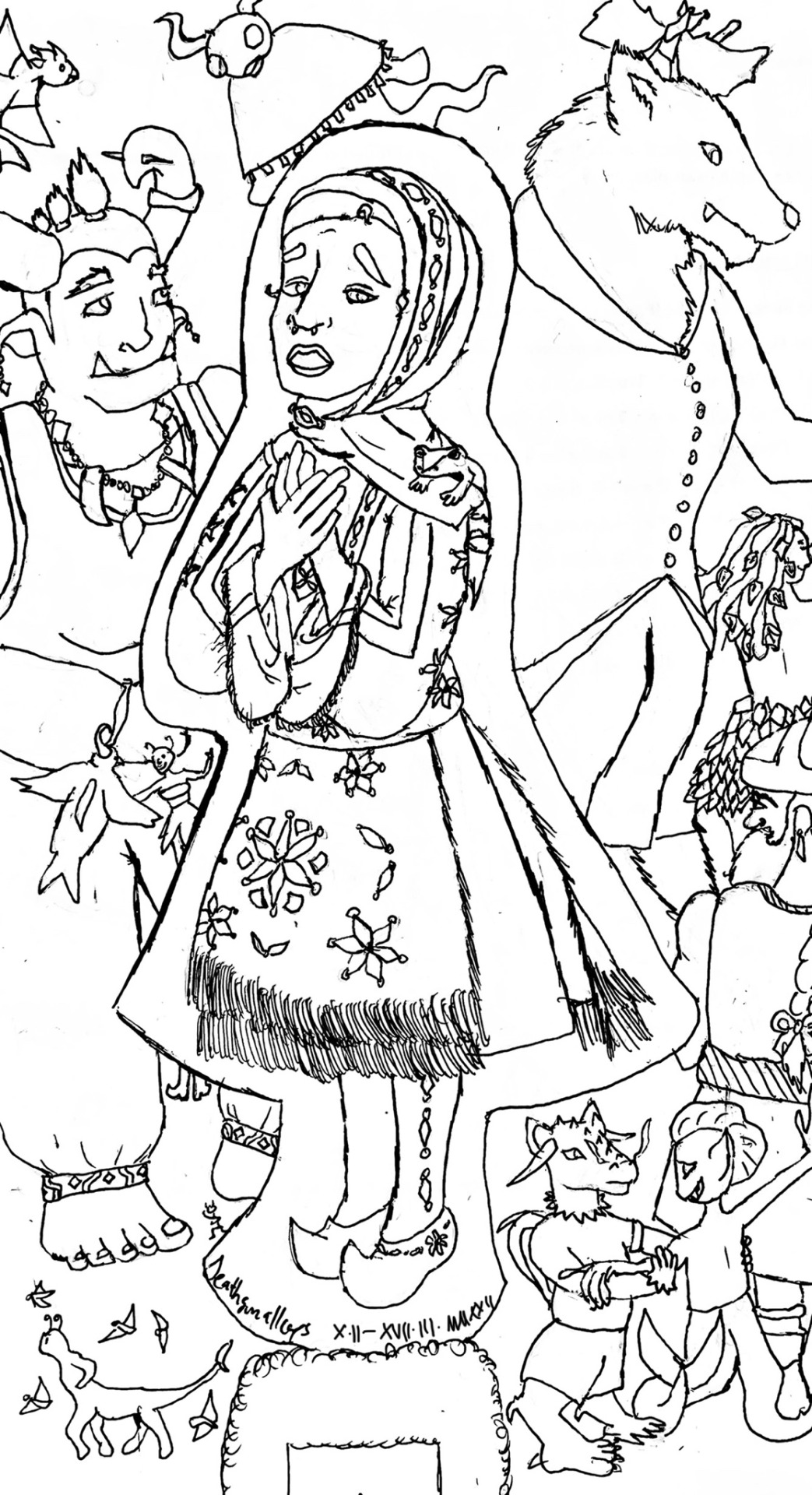
While we waited for the band to commence the slower, more beguiling music that signaled the start of the couple dances, platters of delicacies appeared: tiny, gaudily hued cakes; creatures fashioned of spun sugar; strange vegetables carved into castles and trees and giants; and mounds of gleaming fruits that in the real world would not appear until next summer. Flasks of ţuicǎ and elderberry wine made the rounds. Little glittering goblets were borne on trays that floated conveniently at waist height.
There was no need to keep watch over my sisters. Tati and I had drummed our rules into the younger ones time after time over the years, and they abided by them without question, even when the music had them in its thrall. The rules helped us remember who we were and where we belonged. Dancing Glade was our sanctuary, our joy, our bright adventure. But we did not belong in the Other Kingdom. We were here as guests, through luck, not entitlement. Besides, as Tati had once pointed out, if you had a party every day, parties would soon become a lot less exciting. We were mortal girls, and every one of us would want a mortal life. For most of us that would mean a husband and children.
I frowned, remembering what Father had told us. To be pushed into marrying early in order to provide an heir for Piscul Dracului would be horrible. It would mean not being able to choose properly. It could mean spending the rest of your life with someone you hated. Our father had married for love; he had made his choice with no regard for what folk expected. I did not think we would have that luxury, not until one of us had produced the required son. I shivered as I gazed out over Dancing Glade. We had been lucky so far. We had had the best of both worlds. I hoped it wasn’t time for our luck to change.
The music struck up again, and the folk of the Other Kingdom began, languidly, to form couples and move out onto the sward. Gogu nudged me with his cold nose and I felt my skin prickle.
Look. Over there, under the oaks.
I looked over to the spot where the Night People had retreated into the shade of the trees some time before. I did not see the dashing, black-booted man or his crimson-lipped partner. But there was somebody else there. His eyes were as dark and deep as theirs. His face was as pale—though this was an ashen pallor, white rather than waxy—but the somber lips were more generous in shape. He was young, perhaps our cousin Cezar’s age. He wore a black coat—high-collared, long-sleeved, and buttoned in front, sweeping down to his ankles. What struck me was his intense stillness. He hardly seemed to blink, he barely seemed to breathe, and yet the eyes were intent, keenly focused as he stared out into the moving throng. I followed his gaze, and there was Tati, moving across the sward to join the dancers.
Now that my sister had turned sixteen, it seemed that Ileana had granted her permission to participate in these far more grown-up dances. Tati was hand in hand with a big, blunt-faced figure: the troll, Sten. Her cheeks were flushed with delicate rose. Her hair, stirred by the dancing, spilled over her shoulders like a dark silken cloak. Her gown was modest in design, yet under the lights of Dancing Glade, its plain cut emphasized her perfect figure. Many eyes were on her.
But these eyes were different. The person in the black coat was looking at my sister as if he were starving. He didn’t need to move a muscle for me to read the hunger on his face, and it chilled me.
As I watched my sister dancing—first with Sten, then with Grigori, then with a young man clad in what looked like butterfly wings—my unease grew stronger. I made a decision. We would need to be up soon after dawn to see Father off. We must bid him farewell with looks of cheerful confidence on our faces. That would be impossible if we were exhausted from a night with no sleep.
“Gogu,” I murmured, “we’re going home early.”
He shifted on my shoulder, bunching up his body. I’m ready to go. Don’t worry, Jena. We’ll look after things, you and I.
I gathered up my sisters and we made our formal farewells to Ileana and Marin, thanking them for their hospitality. I cast an eye around, seeking the Night People, but could see none of them, only a group of solemn-looking owls, perched on a branch of the nearest oak.
Ileana said, “Our guests were impressed. Human girls are not bold enough to visit such revels in their part of the world. They asked for your names and commented on your beauty.” Her gaze wandered over all five of us as she spoke, which was unusually polite of her. Almost certainly the compliment referred to Tati, or possibly Iulia. Stela was too young to be called a beauty. As for Paula and me—whichever fairies had offered blessings over our cradles, they had clearly valued brains before looks. We were, in a word, ordinary.
We made our way back to the boats, accompanied by a bevy of folk jostling to hold our lanterns for us. But only the designated boatmen took us across the water, through the mist, back to our own world. In my hands Gogu trembled with terror, and I soothed him with gentle fingers. As my feet touched the home shore, I felt the surge of relief that always filled me at this point. We’re back again. I’ve kept them all safe.
Then it was along the Gallery of Beasts—the gargoyle’s scuttering feet could be heard behind us until he reached his own archway—and up the long, long, winding staircase to the portal.

No shadow play here, just a simple laying of hands on the stone wall. I was last. As my fingers touched the rough surface, the portal swung open, admitting us to the warmth of our bedchamber.
The younger ones were asleep the moment they laid their heads on the pillow. Tati gathered up the gowns they had shed and laid them over the oak chest, while I helped Iulia take the pins out of her hair. By the time I had scrambled wearily into my night robe, she was no more than a gently breathing form under her mounded quilt.
“Jena?” Tati’s voice was quiet as she sat up in bed, brushing out her dark locks.
“Mmm?” I was filling Gogu’s water bowl from the jug, making sure he would be comfortable for what remained of the night. He sat, watching solemnly—a shadowy green form on the little table next to the bed that Tati and I shared.
“Did you see that strange young man?” my sister asked. “The one in the black coat?”
“Mmm-hm. I thought you hadn’t noticed.”
“I wonder who he was,” Tati mused, yawning.
Once the water dish was ordered to Gogu’s liking, I got into bed. The warmth of the goose-feather quilt was bliss over my tired legs. In the quiet of the chamber I could hear little splashing sounds.
“One of them,” I said, my eyelids drooping with tiredness. “Night People. You know what people say about them. They’re dangerous—evil. Dead and alive at the same time, somehow. They can only come out after dark, and they need human blood to survive. I hope Ileana doesn’t let them stay. Did you speak to one of them? I saw Ileana introducing you. What were they like?”
“Cold,” Tati said. “Terribly cold.”
There was a silence, and I thought she had fallen asleep. Then her voice came, a whisper in the shadowy chamber. “I thought the young man looked sad. Sad and … interesting.”
“If you asked Florica,” I said, “she’d tell you that the only thing Night People find ‘interesting’ is sinking their teeth into your neck.”
But my sister was asleep. As the light brightened and birds began a chirping chorus outside, I lay awake, thinking about the winter to come and whether I had been foolish to assure Father that we could cope. After a while, Gogu hopped out of his bath and came to nestle on the pillow by my face, making a big wet patch on the linen. I’m here. Your friend is here. I was still awake when the sun pierced the horizon, somewhere beyond the forest, and down in the kitchen Florica began clattering pots and pans in preparation for breakfast.
Wildwood Dancing Explanation
Isn’t this story so full of imagery? Don’t you feel like you, too, are a part of swirling wonder? I was almost literally enchanted when I read this book. All of Juliet Marillier’s books I’ve read so far (she has a marvelous name) contain such splendor, but this was my first, you know? Also, to be honest, I think this one is aimed at a slightly younger audience, because it has less ‘mature’ themes than her adaptations of the Six Swans fairy tale, Sevenwaters. It also has a cool sequel (different tonally but still enjoyable) called Cybele’s Secret, so let me know what you think if you read them!
The book cover, which I love immensely (it’s very pretty and rich in detail) is unfortunately inaccurate in fashion, for both the area and the time period (medieval). Besides the embroidery patterns, and the hijabs on Tati through Paula, my drawings are actually more accurate! I should've drawn at least one with a vest on over their shirt (that style is called an ie), though - we can just say that the girls didn’t wear any so they wouldn’t hinder movement. The aprons (fotǎs) stay on because they look pretty while twirling. Also, the cover makes it seem as though the book takes place in spring or summer, not autumn.
As the religion of the family is never discussed, and yet they’re considered outsiders who value education, I headcanon that their Dad is Romanian (hence his outfit in the second picture) but their mom was Turkish Muslim. There was a lot of trade between the two countries, and as such their populations swapped a bunch. However, most of the Muslim minority was found in cities/by the coast, so in order to avoid feeling alone, it makes sense the Mom wanted to stay in their old home. But they didn’t, so the girls embroider their clothes with Turkish patterns and wear hijabs, in honor of their religion and their Mom. Stela is a bit too young, to take that aspect of the religion seriously, so she wears a maramǎ, traditional Romanian headwrap, like Florica instead. It’s supposed to only be worn by married women, but do you think a little girl who is surrounded by head-wrapped women will want to be left out? Heck no! So she has a cute little fabric flower on hers, instead of any patterns. Also, frogs are not haram except when it comes to eating them, so it wouldn’t be too weird for Jena to have a pet frog.
Each girl has a different font for her name, when they chant them to open up the portal. I was just goofing off and trying to find ones that fit their personalities and that were still legible XD. Also, for posterity’s sake, each name used to be on a different line, but it was easier and nicer looking to format them in a line, side to side.
Well, I don’t have much else to say in prelude, so let’s talk about the art!
I totally phoned it in for this title picture too. Frankly by the time the other pictures were done I knew this present was going to come to you late, and as I sat down to start on it, I felt like crying. I was very tired and pulled mostly all-nighters that week. So, I just found a font that was similar to my vision, and excused myself. I considered drawing leaves on it digitally, but it looked bad. And that was that. It’s kind of odd that I do titles last, but they’re supposed to be breathers, shrug.
Alrighty, the second picture: I actually did this second to last, lol. Wowed by my success with the Last Unicorn’s scenery picture, I decided to try something similar with the Piscul Dracului. You see, what I put out on paper isn’t often the image or vibes I imagine, partly because of my artistic limitations and because I don’t have any set characteristics in mind. It’s all very annoying. So yeah, to be honest, the castle came out bigger, less craggy and less on the edge of a mountain than in my original vague vision. But I’m satisfied with my work; it has character, perspective, and a mysterious little fox and small woman off to the side ;). I’m hoping to explore this interest in creating scenes and background in later books - I’ve often struggled with scenery and I’m tired of blank spaces.
The third picture was ridiculous, figuring out their positions, clothing patterns, and how to show their personalities. I’m not sure this is what the author imagined when she said they did a five-pointed star together. But I like the result! I wasn’t sure how to draw the portal however lol. Going from left to right, let me describe the sisters and Gogu.
Iulia - it’s clear that she has new clothes (because of her different body shape) and likes to stand out. She has a fan and different type lacework on her fotǎ, instead of a fringe, and a sardonic sort of excitement on her face.
Gogu - he’s an Agile Frog, a species native to much of Southern Europe. He’s just chilling on Jena’s shoulder. I wish I had a chance to draw him larger but I am also tired of drawing frogs.
Jena - I’d like to say her position, as sort of short and behind everybody, showcases her outer personality. She doesn’t mind tooooo much being in the shadows, watching and supporting others, being quiet and dutiful. And yet, she has a septum piercing. As the book goes on, you’ll find that there’s so much more to her ;). I put a brooch on her hijab because I saw one when I looked up Turkish hijab designs and thought it looked cool. She has the most obviously-a-flower-designs because she has the deepest connection with the forest ;). Find out for yourself, I dare you.
Stela - she’s just happy to be doing fun stuff with her big sisters. I’m sure you would know nothing about that ;). Like I said, Stela is wearing a marumǎ, not a hijab, but is otherwise dressed very similarly to her sisters. I adore the little tassels on her sleeves.
Tati - She ended up a bit tall, whoops. And when I started inking, her nose changed :(. But I love her all the same (it helps that she has such a simple pattern all over her outfit lol). She’s looking over everyone, but she isn’t really watching; you can kind of tell her head is already up in the clouds.
Paula - It feels kind of mean but we don’t ever get a good look at her. Maybe you should check out Cybele’s Secret, where she is the main character. Hint hint. Anywho, she's watching the portal open - Paula loves to study and Know things. You can’t tell me that even as a young girl, Paula wouldn’t have been questioning the phenomena.
The fourth picture was kind of a stinker to ink, but it was fun to draw! I meant to make it look more crowded, and to have a blank space around Jena (I absent-mindedly traced it ugh), but this time I tried to be respectful of my time, lol. I drew the werewolf first, in Adam’s outfit from Disney’s Beauty and the Beast, in homage to my original vision for my Beast (look in your sister’s second volume). Then, I drew a big orc lady, because I thought she looked cool (she has a crush on the werewolf but he hasn’t a clue), then the dwarf (she’s what I think Cheery Littlebottom from Discworld would look like), and so on and on. I goofed off and drew the head of Garnet (from Steven Universe) at the bottom center, a couple characters described in the actual story (like Mr. Leafhair), and then the Animorphs in Andalite and bird form on the bottom right (Please check Animorphs out).
I really thought I would enjoy drawing this Jena more, but it was actually a pretty neutral experience. I added her design to this picture first, because it was big and I could reference it. I also decided to give her hooded eyes and the septum piercing while adding details, because I need practice for the first and just thought it was a cool quirk for the second. Gogu is again chilling on her shoulder. I originally meant to have his whole body sit comfortably upon her shoulder, but I wanted to draw him big. Also, while all Muslims are traditionally not supposed to show hair to mahram (non-family members), the average Muslim person would not shame another if person 2 had been dancing or doing a lot of physical activity and some hair came loose. So I did that to show that my girl has been MOVING, and showed some escaped bits of hair on the other sisters in the following picture. Also, it allowed me to show Jena’s beautifully curly hair. (Below is my initial sketch)
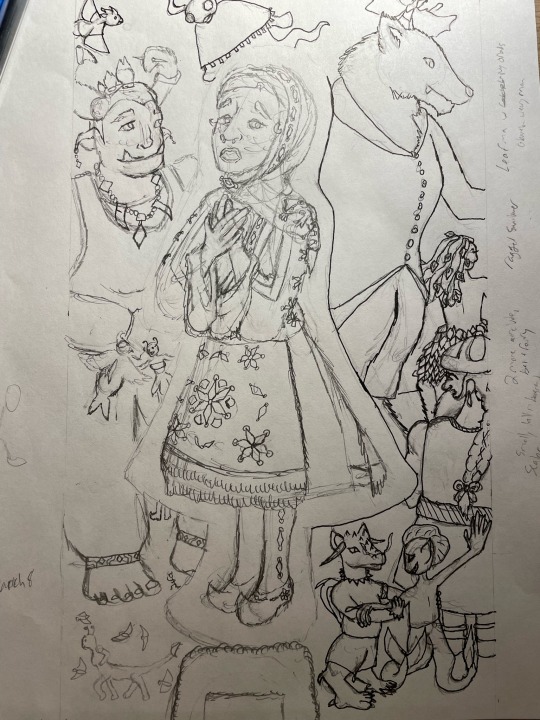
The last picture was the most fun, actually. The perspective for the steps was annoying, and I don’t think it’s perfect, but all the same I like how it turned out, especially since my original plan was to draw a straight one. I’m glad I challenged myself and drew a spiral one instead :D. Now, let’s go down the staircase.
Iulia is in the lead - she’s tired and self-important. So, I only show her fotǎ and foot XD.
The little winged creature and its porch - literally a last minute addition. I thought the space looked too empty.
Tati is carrying a sleeping Stela - while I think it would make more sense for Jena to carry Stela most times, I needed Jena to be free, and maybe they take turns. I really like how Tati’s face turned out in this one, also, you know if Stela’s leg was swinging free like that, she would keep accidentally kicking the back of poor Tati’s thigh, lol. I like how the clothes' wrinkles turned out in this picture. I just really hope it’s clear who is who, what with how Stela is entwined with Tati’s right arm.
Next half, Jena and Gogu: I wasn't sure what to do with her right arm but it turned out alright. Gogu is limp and tired from a long night of Being Jostled. I adore Jena’s face - it’s concerned-but-also- -amused. She’s just checking to see if Paula is there, hence the ‘OK?’ hand signal. Don’t come at me about the historical inaccuracy, at least I corrected the fashion XD.
The little gargoyle going up his own stairs; I drew him in the moist detail first. He’s the little guy who hitched a ride on Jena’s other shoulder. I originally wanted to draw him more similar
Lastly, poor Paula. I could totally see her being the last to leave, asking people a kajillion questions and observing each aspect of the night for just one last clue, some little detail that answers her queries. ANd as such, she has to run up the stairs to catch up with her sisters! That’s why shes so dramatically behind Jena and has to hold up a thumb to indicate that she’s alright. Also, that part is historically accurate :p - Roman emperors did it to indicate approval or to say ‘good’ a thousand or so years before this book is set.
Below are links to my takes on the 12 Dancing Princesses and the Frog Princess, which are more or less partial inspirations for the book :).
(The Twelve Dancing Princesses) (The Frog Princess)
#wildwood dancing#juliet marillier#win a commission#wac#the princess and the frog#the frog prince#12 dancing princesses#twelve dancing princesses#the twelve dancing princesses#Transylvania#New Zealand literature#new Zealander literature#apparently those tags didn’t exist before lol#it’s set in Transylvania Romania but written by a New Zealander#Muslim Romanians#Muslim Romanian
9 notes
·
View notes
Text
Still so so sad there’s not a third book after Wildwood Dancing and Cybele’s Secret
7 notes
·
View notes
Text
Im almost finished with wildwood dancing and all i have to say is tati can meet me in the pit. Have you ever encountered a more pathetic character in your whole life
like your fifteen-year-old sister needs you? She is being preyed upon by your cousin and dealing with everything by herself and you dont even seem to care bc youre in love or whatever? Im honestly very angry about it
#Wildwood dancing#Kinda of the mindset that love should give you strength and not turn you into a useless wilting flower but thats just me
4 notes
·
View notes